News written by Rich Fiscus (September, 2007)
Written by Rich Fiscus @ 30 Sep 2007 6:03
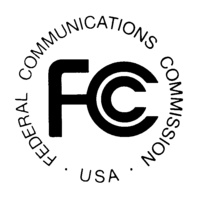 A new study from the U.S. Federal Government's General Accounting Office indicates that not only is there every reason to believe that many residents won't be prepared for, or even informed about, the digital TV transition set for 2009, but there isn't even any effort underway to assess what portion of the public isn't going to be prepared or how to reach them with the message.
A new study from the U.S. Federal Government's General Accounting Office indicates that not only is there every reason to believe that many residents won't be prepared for, or even informed about, the digital TV transition set for 2009, but there isn't even any effort underway to assess what portion of the public isn't going to be prepared or how to reach them with the message.
"There is no one in charge, and that is cause for concern," said Mark L. Goldstein, director of physical infrastructure issues for the GAO. "There is no comprehensive planning effort, and no one is assessing what gaps exist."
Goldstein says the Federal Communications Commision needs to take the lead in educating consumers, but commisioners there don't seem to be able to reach a consensus as to what exactly their responsibility is. Although they've mandated that cable television providers ensure analog signals are available after the transition, little else has even been decided, let alone accomplished. Meanwhile, a recent study indicated more than half of all consumers aren't aware the transition will take place.
What's even worse is the misinformation coming from many retailers. A U.S. Public Interest Research Group study of retailers in Virginia found that sales people often gave "incorrect and misleading information" about the transition, frequently claiming that consumers need to buy new televisions. In reality, even people who rely on over the air broadcasts should be fine since the government will be offering vouchers for digital to analog converter set-top boxes.
Read more...
Written by Rich Fiscus @ 30 Sep 2007 2:30
 Wendy Seltzer, founder of the Chilling Effects Clearinghouse - a project which brings together law clinics from several prominent law schools and the EFF to educate individuals about their rights with regard to intellectual property and fair use, recently spoke at Cornell University advising universities to fight attempted lawsuits against students for illegal file sharing.
Wendy Seltzer, founder of the Chilling Effects Clearinghouse - a project which brings together law clinics from several prominent law schools and the EFF to educate individuals about their rights with regard to intellectual property and fair use, recently spoke at Cornell University advising universities to fight attempted lawsuits against students for illegal file sharing.
Although she addressed the established problems with identifying users by IP address, that wasn't the main focus of her talk. Instead, she concentrated the potential damage to both universities and students that could result from cooperation, or at Limited resistance.
By Seltzer's reasoning, there's a lot more at stake than the legal problems of a small percentage of college students. In her words, universities should resist on the grounds that the lawsuits place an "undue burden" on them by pitting school administration against the students they're supposed to serve. She argues that when they're forced to share private information about students with RIAA lawyers they risk creating an atmosphere counter to the goal of academic opennes that's critical to education.
Read more...
Written by Rich Fiscus @ 30 Sep 2007 1:00
 A paper from economist Stan Liebowitz argues that both the music industry and file sharing defenders are cherry picking facts to prove their points.
A paper from economist Stan Liebowitz argues that both the music industry and file sharing defenders are cherry picking facts to prove their points.
The primary purpose of the paper was debunking earlier research out of Harvard University which concluded that P2P file sharing has no impact on CD sales. The argument in that study was that P2P activity falls drastically during the summer because most college students don't use file sharing services when they're not at school.
Liebowitz points out two key problems with the study. First, he says the publicly available data on file sharing doesn't back the Harvard study with regard to file sharing patterns. According to his analysis file sharing activity actually increased slightly over the summer in the years covered by the original study. He also notes that the Harvard researchers didn't release their entire dataset, making it impossible for it to be subjected to any kind of peer review.
His report isn't one sided though. He also points out that the music industry's problems are primarily of their own making. He says that music labels' attempts to Block the availability of new technology and sue customers hasn't done anything to stop profits from dropping.
Read more...
Written by Rich Fiscus @ 30 Sep 2007 10:38
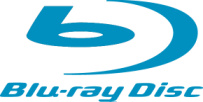 At least one Sony strategy to promote Blu-ray discs seems to be paying off. As we reported in July, Sony introduced a revenue sharing plan to lower the price of entry into the Blu-ray rental market. Although the move does seem to be at odds with statements from Sony and other Blu-ray backers that the format war is already over, it does seem to be making at least a small impact.
At least one Sony strategy to promote Blu-ray discs seems to be paying off. As we reported in July, Sony introduced a revenue sharing plan to lower the price of entry into the Blu-ray rental market. Although the move does seem to be at odds with statements from Sony and other Blu-ray backers that the format war is already over, it does seem to be making at least a small impact.
Hastings Entertainment, a regional retail chain based in Amarillo, Texas that already offered video rentals in addition to CD, video, and book sales, has expanded their selection of Blu-ray discs available for rent. According to video category manager Mason Goodfellow, the move is a direct result of the revenue sharing program.
“It basically helped us to spread [Blu-ray] to all of our stores and not have to make that much of a financial investment,” said Mason Goodfellow, Hastings video category manager. “We might be able to get in as many as eight to 10 copies per Title [in one store]. Without revenue-sharing, that might have been three to four copies.”
Read more...
Written by Rich Fiscus @ 30 Sep 2007 8:56
 U.S. retailers have started advertising various popular features for $3.99. The movies, from Universal, Sony, and Paramount, would seem to be an effort from studios to disappointing DVD sales over the last two years.
U.S. retailers have started advertising various popular features for $3.99. The movies, from Universal, Sony, and Paramount, would seem to be an effort from studios to disappointing DVD sales over the last two years.
Although the studios behind those movies haven't had about what's going on, Jeff Baker, senior VP-general manager of theatrical catalog and sales, said “It’s unprecedented to see national retailers outside of the fourth quarter promote $3.99 DVDs. It’s a negative precedent in the business to do that type of lower budget pricing outside of the fourth quarter. You would need to see some uplift in unit volume velocity to compensate for that lower pricing to maintain profit margins, and I have not uniformly seen at retailers the necessary uplift in volume.”
Regardless of how studio executives feel about the move, it's become clear over the last couple of years that DVD sales are dropping steadily, and it's not a trend that's going to reverse on its own. However, it's questionable how good a solution bargain basement pricing is.
Like the decline of CD sales, there are likely many factors for reduced interest in DVDs. One factor that's been cited in many recent studies is the proliferation of DVRs, especially among HDTV owners. Many HDTV owners have expressed a preference for time shifting hi-def content over watching DVDs. While lowering prices will certainly make them more attractive than they were at a higher price point, it's hard to imagine them competing with content consumers are already paying for, like cable and satellite services.
Read more...
Written by Rich Fiscus @ 28 Sep 2007 10:28
 As part of their plan to provide 100 hi-def channels by the end of this year, DirecTV has added 21 new HD channels to its satellite television service.
As part of their plan to provide 100 hi-def channels by the end of this year, DirecTV has added 21 new HD channels to its satellite television service.
The channels will be broadcast from a new satellite the company launched recently, and will use MPEG-4 Compression. Since their existing HD lineup uses MPEG-2 compression, subscribers may have to upgrade their receivers to get the necessary hardware for decoding the video. Additionally, customers without a new wider dish for reception may have to invest in one.
The new HD channels include offerings from Starz, Showtime, CNN, and the NFL. Another expansion next month will boost the number to 70 channels.
Source: This Week In Consumer Electronics
Written by Rich Fiscus @ 28 Sep 2007 10:09
 Next week will mark the first time a copyright infringement case brought by the RIAA for alleged copyright violations via P2P network actually makes it to a jury trial. The RIAA's evidence in the case of Virgin v. Thomas seems to hinge on the testimony of an expert witness whose expertise has already been called into question in another case.
Next week will mark the first time a copyright infringement case brought by the RIAA for alleged copyright violations via P2P network actually makes it to a jury trial. The RIAA's evidence in the case of Virgin v. Thomas seems to hinge on the testimony of an expert witness whose expertise has already been called into question in another case.
In a deposition earlier this year, Iowa State University associate professor Douglas Jacobson testified about his forensic examination of a defendant's computer hard drive. The examination was done on behalf of the RIAA legal team, based on information provided by MediaSentry, a company that works with the entertainment industry to identify copyrighted works shared illegally on P2P networks.
His testimony states an assumption on his part that MediaSentry had conclusively proven an IP address registered to the defendant was used for sharing files. His conclusion, resulting directly from that premise, stated that despite a lack of either MP3 files that could have been shared or KaZaA software RIAA attorneys claim was used to share the files doesn't exxonerate the defendant, but rather shows that she has another computer.
Read more...
Written by Rich Fiscus @ 28 Sep 2007 12:32
 Cinematube.net and SSUpload are the most recent targets of lawsuits by the MPAA, claiming the two websites are liable for copyright infringement due to a large number of links to pirated movies on both sites.
Cinematube.net and SSUpload are the most recent targets of lawsuits by the MPAA, claiming the two websites are liable for copyright infringement due to a large number of links to pirated movies on both sites.
"We are putting illegal Web operators on notice that they are not above the law and will face serious consequences for their activities," said John Malcolm, executive vp and director of worldwide anti-piracy operations at the MPAA.
Although SSUpload is run from servers in the US, Cinematube is located in the country of Malaysia, an area of the world believed to be home to many piracy rings, distributing everything from fake designer clothing and accessories to pirated CDs and DVDs.
Major efforts by copyright owners, as well US and various Asian countries, have been made to curb Asian piracy operations. So far those efforts have failed ot put a major dent in those operations, which are commonly run by criminal organizations large enough to simply move to another location and start all over again.
Source: Reuters
Written by Rich Fiscus @ 28 Sep 2007 12:08
 With the offical acceptance of CSS technoloy on DVD by both the DVD Forum and DVD-CCA licensing group, responsible for CSS licensing, Sonic Solutions is moving forward with plans to offer the technology to both consumers and content vendors.
With the offical acceptance of CSS technoloy on DVD by both the DVD Forum and DVD-CCA licensing group, responsible for CSS licensing, Sonic Solutions is moving forward with plans to offer the technology to both consumers and content vendors.
On the consumer end, the plan is for downloadable DVDs to become available online which can be burned using the company's Qflix sofftware. A lack of copy protection has long been a studio argument against distributing high quality video across the internet. Despite the fact that CSS encryption was cracked several years ago, it's the only encryption that can be used for DVDs without making them unplayable on a standard standalone DVD player.
For vendors, Sonic would like to see the technology used for on-demand burning. Unlike traditional pressed DVDs that aren't economically feasible to produce in small numbers, DVDs created with Sonic's DVD On Demand technology could theoretically be sold at a much lower cost, and even be created by automated kiosks like those currently being operated by Polar Frog. On-demand DVD burning kiosks could potentially revolutionize DVD sales because they can provide a great deal of variety while keeping inventory and shelf space to a minimum.
Read more...
Written by Rich Fiscus @ 27 Sep 2007 11:34
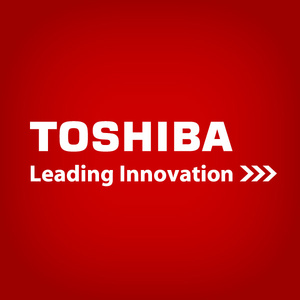 Toshiba is planning to unveil a new video processing product based on the Cell processor that powers Sony's PlayStation3. The Cell processor was developed in a joint venture from Sony, Toshiba, and IBM. The product, dubbed SpursEngine, will be the only the second product introduced that takes advantage of the technology.
Toshiba is planning to unveil a new video processing product based on the Cell processor that powers Sony's PlayStation3. The Cell processor was developed in a joint venture from Sony, Toshiba, and IBM. The product, dubbed SpursEngine, will be the only the second product introduced that takes advantage of the technology.
SpursEngine is basically a stripped down Cell running at 1.5GHz with MPEG-2 and H.264 (AVC) decoding hardware added. It's designed to fit on a small peripheral card for a computer.
Toshiba apparently intends to use SpursEngine to create some kind of new GPU. They company's announcement earlier this week mentioned a demo planned for Japan that will involve capturing images of faces from the audience and turned into 3D models, but didn't elaborate.
No details have been released regarding the card's intended use. Since the market for making 3D models of faces is fairly small, it will be interesting to see what else it can do. At the very least it might potentially be a good hardware solution for hi-def video playback - something that many people's computer hardware isn't capable of on its own.
Read more...
Written by Rich Fiscus @ 27 Sep 2007 7:52
 Sling Media co-founder and CEO Blake Krikorian is excited about the company's future after the announcement last week that the company is being acquired by Dish Network parent company Echostar Communications.
Sling Media co-founder and CEO Blake Krikorian is excited about the company's future after the announcement last week that the company is being acquired by Dish Network parent company Echostar Communications.
As a subsidiary of Echostar, and potentially the flagship brand for a new division of the satellite provider that would concentrate exclusively on hardware, Sling should have access to a fair amount of technology already developed for Dish Network. He says "EchoStar has built a lot of their own products, deployed more DVRs than anyone in the world. All that software and hardware they built themselves. It's pretty interesting technology for us to leverage into some of our solutions." He adds "They're telling us to 'Go, run like crazy, and do what you're doing, and let us know how we can help you. And by the way, here's a bunch of technology.'"
While Krikorian envisions enhancements to Dish Network's own set-top boxes to take advantage of features from the highly successful Slingbox line, the main focus for Sling will continue to be interoperability with a wide variety of receivers and signals.
He sees the deal as a good fit for Sling because he believes Echostar is serious about developing hardware, describing CEO Charlie Ergen as "an entrepreneur, not a corporate suit," and saying that he believes the company is commited to developing new technology.
Read more...
Written by Rich Fiscus @ 27 Sep 2007 7:32
 Imagine if a major automobile manufacturer came up with a way to use an onboard computer to require that you buy gasoline from a particular company. It's the same gas you can buy anywhere, but unless the pump includes special circuitry only available to a single company that paid a bunch of money to the car's manufacturer for the privilege, the gas tank can't be filled. Now let's say that an enterprising individual wants to choose his own gas station, so he comes up with a way to reprogram the car's computer, allowing the owner to fill the gas tank from any pump at any gas station. Let's finally suppose that there's a recall on the car, requiring owners to bring them into a dealership for free repairs, but while the car is being fixed, every dealer is required to check the fuel tank computer to make sure it hasn't been tampered with to allow gas from non-approved sources, and disable the car's engine if evidence of tampering is found. When irate owners complain to dealership management they're simply told that a license agreement they agreed to by driving off the lot voids the car's warranty, and another on a piece of paper they signed to get the recall work done allows the dealership to modify the car in whatever way the manufacturer wants, so basically there's nothing they can do.
Imagine if a major automobile manufacturer came up with a way to use an onboard computer to require that you buy gasoline from a particular company. It's the same gas you can buy anywhere, but unless the pump includes special circuitry only available to a single company that paid a bunch of money to the car's manufacturer for the privilege, the gas tank can't be filled. Now let's say that an enterprising individual wants to choose his own gas station, so he comes up with a way to reprogram the car's computer, allowing the owner to fill the gas tank from any pump at any gas station. Let's finally suppose that there's a recall on the car, requiring owners to bring them into a dealership for free repairs, but while the car is being fixed, every dealer is required to check the fuel tank computer to make sure it hasn't been tampered with to allow gas from non-approved sources, and disable the car's engine if evidence of tampering is found. When irate owners complain to dealership management they're simply told that a license agreement they agreed to by driving off the lot voids the car's warranty, and another on a piece of paper they signed to get the recall work done allows the dealership to modify the car in whatever way the manufacturer wants, so basically there's nothing they can do.
Read more...
Written by Rich Fiscus @ 26 Sep 2007 6:27
 New figures released by Leichtman Research Group (LRG), 20% of US homes have DVRs, with an increase to 50% expected by 2011.
New figures released by Leichtman Research Group (LRG), 20% of US homes have DVRs, with an increase to 50% expected by 2011.
"Cable and satellite TV companies are driving the penetration of DVRs into the home," LRG President Bruce Leichtman told the E-Commerce Times. "The evolution of this product, like many others, is not solely about consumer demand," he said. "It's often about supply. This is a great example about the supply side pushing a product."
Rob Enderle, president and principal analyst of the Enderle Group, credits cable providers with quick adoption of the technology, saying "For the most part, the big motivator for consumers to get these things is that the cable companies have subsidized these into the market pretty aggressively."
Analysts also say the emergence of HDTV signals has also been a factor in the DVR's popularity. Ross Rubin, director of industry analysis for the NPD Group said "People with HD TVs prefer to watch HD programming. So if it's a choice between watching something in high definition that they've recorded and something live that may not be available in high-definition, they may find more value from the HD DVR."
Read more...
Written by Rich Fiscus @ 26 Sep 2007 5:49
 Jean-Bernard Levy, chairman of Universal Music Group parent company Vivendi commented on UMG's very public feud with Apple over iTunes pricing, saying "The split between Apple and (music) producers is indecent," adding "We should have a differentiated price system."
Jean-Bernard Levy, chairman of Universal Music Group parent company Vivendi commented on UMG's very public feud with Apple over iTunes pricing, saying "The split between Apple and (music) producers is indecent," adding "We should have a differentiated price system."
Since July, UMG, the world's largest record label has held out on renewing a new long term deal for iTunes distribution, preferring to sign a new contract every month instead. Over the same period of time, UMG has been experimenting with ways to promote non-iTunes services, including providing DRM free downloads only through iTunes competitors.
Levy described the situation as a work in progress, saying "We are in a phase during which many different actors are talking to each other ... We are trying to put in place several projects to ensure that music is better remunerated ... We are not just talking to Apple."
Of course, what he really means is that UMG is working with other companies in an effort to either force Apple to offer a more lucrative contract or cut them out of the distribution chain altogether. So far no one has had any luck competing with iTunes, although detractors in the music industry often contend that's a result of a competitive advantage created by owning both the download and playback market through sales of iPods.
Read more...
Written by Rich Fiscus @ 25 Sep 2007 7:33
 US satellite television provider Echostar Communications, owner of Dish Network, has agreed to buy Sling Media, makers of the wildly successful Slingbox. Prior to the announcement, Echostar already owned a small stake in the company. If everything goes as planned, after spending another $380 million they'll own the rest.
US satellite television provider Echostar Communications, owner of Dish Network, has agreed to buy Sling Media, makers of the wildly successful Slingbox. Prior to the announcement, Echostar already owned a small stake in the company. If everything goes as planned, after spending another $380 million they'll own the rest.
"EchoStar's acquisition of Sling Media will allow us to offer innovative and convenient ways for our customers to enjoy their programming on more displays and locations, including TVs, computers and mobile phones, both inside and outside of the home," said Charlie Ergen, CEO and co-founder of EchoStar, in a statement.
The statement continues "As an early investor in Sling Media, EchoStar has been pleased with the progress and commitment the company has made establishing Sling Media and the Slingbox as powerful and beloved digital media brands,"
Once the purchase is complete, Echostar may end up dividing into two distinct companies. One would consist of Dish Network and related operations, while the other would concentrate on consumer electronics manufacturing, with a particular emphasis on set-top boxes. Company officials believe the split would make both companies more attractive to investors, especially considering that some of the goals of one operation would likely be at odds with the other.
Read more...
Written by Rich Fiscus @ 25 Sep 2007 7:11
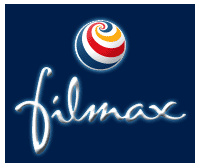 Filmax Entertainment of Spain is launching an online store selling movies and music around the world. The company hopes to have the site operational sometime in the first half of 2008.
Filmax Entertainment of Spain is launching an online store selling movies and music around the world. The company hopes to have the site operational sometime in the first half of 2008.
With box office revenue and DVD sales both falling last year, Filmax is revamping operations in a number of ways. As part of a three year strategic plan, they also plan to concentrate on production, rather than acquisition of new movies.
"In the last two to three years we've reduced drastically our acquisitions budget. We used to invest $40 million a year in film acquisitions. These days, we prefer to invest that in production," said Filmax chairman Julio Fernandez.
In addition to hosting titles from Filmax's catalog of 4,000 movies and almost 2 million song downloads from a variety of labels around the world. the site will also be used for Streaming two different online television channels, including one that specializes in horror movies. "We will connect all the fantasy genre fans around the world," said Fernandez.
Over the next three years, Filmax plans to raise more than $135 million in new investments, which will be used partly to increase their online presence.
Read more...
Written by Rich Fiscus @ 24 Sep 2007 6:18
 A recent report from entertainment market analysis firm Screen Digest says the UK online TV market is expected to be worth £181 million ($362 million) by 2011, however movie downloads aren't expected to see nearly the same amount of growth over the same time period.
A recent report from entertainment market analysis firm Screen Digest says the UK online TV market is expected to be worth £181 million ($362 million) by 2011, however movie downloads aren't expected to see nearly the same amount of growth over the same time period.
Despite growth in television content, music downloads are still expected to dominate online distribution, with projected sales totaling nearly 60% more than television.
Arash Amel, senior analyst for Screen Digest, said: “Broadcasters and pay TV operators will come under increasing pressure from many major ‘virtual networks,’ such as YouTube and Joost, who will be competing for viewers’ time and attention. This will be exacerbated by hardware manufacturers, such as Apple, Microsoft and Sony, who will be far more adept at selling TV shows because of their existing device relationships with the consumer.”
The report indicates that lack of interest in watching movies on a PC will be the difference between movies and other downloads, although with the introduction of new set-top boxes designed to connect your television to downloadable content it seems like that obstacle may not stand in the way for long.
Read more...
Written by Rich Fiscus @ 24 Sep 2007 6:06
 Blu-ray has scored another victory of questionable importance by scoring an endorsement from the Home Theater Specialists of America (HTSA), a buying group for A/V dealers and installers. The decision to back the format was based on member sales trends.
Blu-ray has scored another victory of questionable importance by scoring an endorsement from the Home Theater Specialists of America (HTSA), a buying group for A/V dealers and installers. The decision to back the format was based on member sales trends.
HTSA said it expects its exclusive support of Blu-ray to “strengthen retailer commitment to providing more BD-based devices to meet growing consumer demand.”
Executive Director Richard Glikes said “Based on our member research and observations in the Field, it is clear that HTSA customers have made Blu-ray Disc their preferred HD format for movies and other packaged video content.”
Jay Vandenbree, President of Consumer Sales for Sony Electronics reacted to the announcement by saying "I think it speaks volumes when support comes from those who specialize in home theater, and are closest to the consumer.”
Of course HTSA's decision is actually quite different from most consumers who are overwhelmingly not interested in next-gen players because they're happy with the quality of standard DVD, often mistakenly believing that DVD is already in hi-def.
Read more...
Written by Rich Fiscus @ 23 Sep 2007 8:40
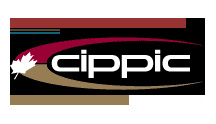 A study from the Canadian Internet Policy and Public Interest Clinic (CIPPIC) at the Universite of Ottawa claims that DRM on various products, ranging from downloaded MP3s to productivity and security software violates Canadian law because users aren't adequately notified of how personal information is collected and used. It also indicates that Canadian law requires that consumers be allowed to opt of the collection and use of personal details.
A study from the Canadian Internet Policy and Public Interest Clinic (CIPPIC) at the Universite of Ottawa claims that DRM on various products, ranging from downloaded MP3s to productivity and security software violates Canadian law because users aren't adequately notified of how personal information is collected and used. It also indicates that Canadian law requires that consumers be allowed to opt of the collection and use of personal details.
"The privacy concerns with DRM are substantiated by what we saw," David Fewer, staff counsel with CIPPIC and the study's lead investigator, said. "In the Canadian marketplace we've found that there is simply widespread noncompliance of PIPEDA (Personal Information Protection and Electronic Documents Act)." Of particular concern to study authors was the failure of companies to indicate that personal details were being collected for DRM purposes in their privacy policies.
Christopher Levy, CEO of DRM solutions provider BuyDRM, doesn't agree with many of the conclusions of the report. "The focus of the DRM system is to encrypt a piece of media, manage the licence key, profile to that licence, and deliver it -- that's it," Levy said. "It's unfortunate that consumers have been misled by a lot of vocal critics because the truth is DRM is no more evil than the lock and key that's on your door, the alarm on your car, or the authentication system in your cell phone."
Read more...
Written by Rich Fiscus @ 23 Sep 2007 8:12
 According to a Parks Associates study, the portable media player market won't really take off until more content is available and devices make improvements to the overall viewing experience.
According to a Parks Associates study, the portable media player market won't really take off until more content is available and devices make improvements to the overall viewing experience.
“The PMP market has not reached one tenth of its potential yet, and this data explains why," contended senior analyst Harry Wang. “Compelling video content and good video viewing experience trump cost of video content as the top two factors that will drive consumers' usage of next-generation, video-focused portable entertainment devices,” he said in citing the survey of PMP owners’ needs.
While portable devices have had video capabilities for years, small displays and little content created specifically for them, along with a high price tag, have held back mainstream adoption.
The study is hopeful about the latest generation of iPods, saying “Apple is close to having a dream device for portable video," but cautions that their highly publicized break with NBC Universal over pricing could open the door for services besides iTunes to flourish, possibly hitting them where it hurts the most - in iPod sales.
Soiurce: This Week In Consumer Electronics
Written by Rich Fiscus @ 22 Sep 2007 10:18
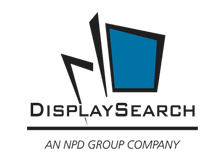 The second week in October will see some of the biggest names in HDTV meeting in Los Angeles for DisplaySearch’s Fifth Annual HDTV Conference.
The second week in October will see some of the biggest names in HDTV meeting in Los Angeles for DisplaySearch’s Fifth Annual HDTV Conference.
The primary purposes of the conference are to share current market information from representatives of such groups as DisplaySearch, The NPD Group, Wedbush Morgan, Goldman Sachs, and Kersey Strategies, and make attendees aware of new HDTV related opportunities.
Much of the event will focus on content delivery, especially the next generation blue laser format war between HD DVD and Blu-ray. The role of game consoles in the HDTV industry will also be explored.
The next 1-2 years could see a great deal of innovation related to HDTVs. As some areas of the world abandon analog broadcasting in favor of all digitial over the air television, the percentage of homes that are HDTV capable should keep increasing. This means more consumers buying more hardware, who may be interested in new ways to receive content, ranging from DVRs to Video On Demand and IPTV.
Read more...
Written by Rich Fiscus @ 22 Sep 2007 9:28
 Sales of television DVD box sets continue to grow in popularity, spurred in part by last year's hit Heroes. The show's DVD release coincided with a marketing blitz promoting the second season, which premieres in the United States next week.
Sales of television DVD box sets continue to grow in popularity, spurred in part by last year's hit Heroes. The show's DVD release coincided with a marketing blitz promoting the second season, which premieres in the United States next week.
“We are absolutely on fire,” said Craig Kornblau, president of Universal Studios Home Entertainment and Universal Pictures Digital Platforms, which markets NBC series Heroes: Season 1 on DVD. “We put out a number of good titles already [this fall] on the TV side, and they’re really cooking.”
Between last week's Emmy Awards and next week's full slate of series and season premiere's, Kornblau sees a lot of free marketing for television DVD products. After mini series Broken Trail received an Emmy last week sales got a slight boost according to Sony Pictures Home Entertainment Vice President of Marketing Marc Rashba.
Although there is potential profit from television series DVDs, there has been increased competition in recent years, both of recent content and older series. As the market expands even further, the role of DVD sales is likely to become more important for television networks' business models. DVR useage is quickly eroding the perceived value of advertising time, and downloads haven't been able to reach a mass market, due primarily to the challenge associated with playback on a television screen.
Read more...
Written by Rich Fiscus @ 22 Sep 2007 9:00
 NBC distributor Universal is hoping to increase ratings for their critically acclaimed show Friday Night Lights. The show, based on the movie of the same name, has been well received by critics, but hasn't fared nearly as well in the ratings. Hoping to reverse the show's fortunes, Universal has made the show's first season available on DVD for around half the price usually associated with other television series.
NBC distributor Universal is hoping to increase ratings for their critically acclaimed show Friday Night Lights. The show, based on the movie of the same name, has been well received by critics, but hasn't fared nearly as well in the ratings. Hoping to reverse the show's fortunes, Universal has made the show's first season available on DVD for around half the price usually associated with other television series.
"We're certain that home entertainment consumers who haven't yet experienced this unique show will be instantly won over by it once they see it," said Hilary Hoffman, senior VP of brand and digital marketing at Universal.
Apparently the reduced price hasn't been particularly effective, as sales haven't been impressive so far. Until the new season starts there's no way of knowing whether this is an indication of the show's future ratings, or merely a failed marketing effort. However if the show does take off it may mean a lot of new viewers happily discovering the first season available at near discount bin prices.
Source: Video Business
Written by Rich Fiscus @ 22 Sep 2007 7:33
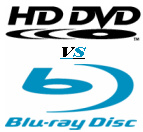 A study released by the NPD Group shows that most owners of HDTVs aren't particularly excited about the next generation technology in HD DVD and Blu-ray. Only 11 percent seem preparted to by one within the next six months.
A study released by the NPD Group shows that most owners of HDTVs aren't particularly excited about the next generation technology in HD DVD and Blu-ray. Only 11 percent seem preparted to by one within the next six months.
The biggest bit of bad news for next generation format backers is that the overwhelming majority of HDTV owners are content with the quality of their standard definition or upsampling DVD players. Given the Limited number of titles available in either hi-def format, there doesn't appear to be a compelling argument for to upgrade for most.
“We’re seeing some frustration with high-definition formats among people who’ve made the plunge because they currently cannot get enough content to meet their needs,” said Russ Crupnick, VP and senior entertainment industry analyst. “These early adopters aren’t choosing to evangelize high-definition players to others, in large part because they are unhappy with the available selection. The good news is that the industry can address this concern by releasing HD DVD and Blu-ray Disc titles more aggressively.”
Read more...
Written by Rich Fiscus @ 22 Sep 2007 6:59
 Joining NBC and ABC in offering free television show downloads, Fox will be promoting several shows by making their premieres available for free on iTunes. The network hopes the downloads will convince viewers to either watch the shows on TV or buy future episodes through iTunes.
Joining NBC and ABC in offering free television show downloads, Fox will be promoting several shows by making their premieres available for free on iTunes. The network hopes the downloads will convince viewers to either watch the shows on TV or buy future episodes through iTunes.
Television networks appear to be having trouble figuring where future revenue will come from as more and more viewers use DVRs to skip commercials. NBC's recently announced approach combines DRM to disable playback after a week with unskippable ads and the requirement for a special player from the network's website.
A market where consumers directly determine the value of a television show is something of a new concept for the major U.S. networks. Previously ratings and demographics could be combined to calculate the value of advertising time on each show. The same show, with the same viewership and demographics might be worth more or less than the traditional value would have been when the decision to watch is colored by a show's perceived value to the network.
Variety and choice are likely to be necessary to make television networks profitable. With no single delivery method able to dominate consumer interest, and new download and Streaming products being introduced regularly, networks should be paying close attention to how viewers acquire and consume shows, so they can find revenue streams compatible with what's already in demand.
Read more...
Written by Rich Fiscus @ 21 Sep 2007 8:23
 The DVD Copy Control Association (DVD CCA) has finally given approval for technology to add CSS encryption to recordable DVDs. It was approved by the DVD Forum earlier this year, but DVD CCA approval was slowed by content owners who wanted additional DRM. Since additional anti-piracy measures would likely cause playback problems on existing players, they were eventually rejected.
The DVD Copy Control Association (DVD CCA) has finally given approval for technology to add CSS encryption to recordable DVDs. It was approved by the DVD Forum earlier this year, but DVD CCA approval was slowed by content owners who wanted additional DRM. Since additional anti-piracy measures would likely cause playback problems on existing players, they were eventually rejected.
There are two potential markets for the technology right now. The more lucrative is retail burning kiosks, which some chains already have plans to deploy. Such on-demand kiosks would reduce both inventory overhead and shelf space requirements for carrying a large selection of DVDs.
Depending on the cost of hardware required to write CSS to a recordable disc, another potential market would be downloads which could be burned with CSS on a home burner and then played on a standard DVD player.
Read more...
Written by Rich Fiscus @ 21 Sep 2007 7:46
 Figures released by UK regulatory company Ofcom show that digital television is installed in 84% of UK homes. The 13% increase in the last year is the biggest one year increase to date.The figures are good news since the switch to 100% digital television broadcasting is set to begin in October.
Figures released by UK regulatory company Ofcom show that digital television is installed in 84% of UK homes. The 13% increase in the last year is the biggest one year increase to date.The figures are good news since the switch to 100% digital television broadcasting is set to begin in October.
In just the second quarter of this year, running from April through June, nearly 2 million freeview boxes were sold. Terrestrial broadcast is the most common viewing format, with a presence in 9.1 million homes, followed closely by both free and pay satellite service which combined are in 9 million more.
The report also indicates nearly 30% of 35 million secondary televisions are digital ready.
Source: BBC
Written by Rich Fiscus @ 20 Sep 2007 8:31
 Talal Shamoon, CEO of a leading DRM provider, blames content owners for the public's intelerance for the technology. At the Digital Rights Strategies conference he outlined a list of mistakes that he believes have been made in DRM implementations.
Talal Shamoon, CEO of a leading DRM provider, blames content owners for the public's intelerance for the technology. At the Digital Rights Strategies conference he outlined a list of mistakes that he believes have been made in DRM implementations.
In his presentation he pointed out that DRM stops consumers from exercising legitimate rights, attempts to Block new technology, and is being used to protect content owners from abandoning their current business model. He said “Most deployments of DRM today have flown in the face of consumer behavior.”
At least on Sony executive isn't satisfied with the most common DRM implementation; the encryption and analog protection found on DVDs. “I think there is a role for DVD burning,” said Scott Smyers, VP of network and systems architecture for Sony Electronics. “My kids have a lot of DVDs that they play in the car, and after a few trips, they’re often unplayable. So I Rip and burn them to protect the originals.” As most Afterdawn visitors already know, this is illegal under the DMCA, which the Library of Congress has affirmed by refusing to allow an exemption for fair use copying in their annual reviews.
Read more...
Written by Rich Fiscus @ 20 Sep 2007 7:30
 NBC plans to offer downloads of a limited number of shows starting in October. The downloads will include adds that can't be skipped and will include DRM to only allow playback for a week after the episode airs on TV.
NBC plans to offer downloads of a limited number of shows starting in October. The downloads will include adds that can't be skipped and will include DRM to only allow playback for a week after the episode airs on TV.
It sounds similar to the BBC's iPlayer, which was launched to a limited number of users earlier this year, although that program is designed specifically for people who pay for TV licenses that are used for BBC funding, and currently allows viewers to watch downloaded programs for up to 30 days.
Although NBC will certainly be criticized for including the ads, their shows are already available without commercials for a fee. They can also be viewed commercial free with a DVR, or streamed from NBC's website.
"With the creation of this new service, we are acknowledging that now, more than ever, viewers want to be in control of how, when and where they consumer their favorite entertainment," said Vivi Zigler, executive vice president of NBC Digital Entertainment.
A limited number of shows will initially be available, including "Heroes," "The Office," "Life," "Bionic Woman," "30 Rock," "Friday Night Lights," "Late Night with Conan O'Brien" and "The Tonight Show with Jay Leno."
Read more...
Written by Rich Fiscus @ 19 Sep 2007 7:02
 Contreversial News Corp. head Rupert Murdoch commented on Paramount's decision to support HD DVD exclusively after previously offering both HD DVD and Blu-ray releases, saying "Paramount switched out the other day. God knows why." However, he followed that by saying he did actually know why, and that it was because Paramount and Dreamworks SKG were paid a total of $150 million.
Contreversial News Corp. head Rupert Murdoch commented on Paramount's decision to support HD DVD exclusively after previously offering both HD DVD and Blu-ray releases, saying "Paramount switched out the other day. God knows why." However, he followed that by saying he did actually know why, and that it was because Paramount and Dreamworks SKG were paid a total of $150 million.
Entertainment industry executives representing studios backing each format were at the New York investor conference. While Disney CEO Robert Iger said "We haven't taken any money (to choose Blu-ray) because we think it's far and away the best business," Viacom's Philippe Dauman defended Paramount's decision, saying it makes more sense financially to back a single format, and HD DVD's lower priced players were behind the decision. He wouldn't comment on allegations of a payoff from HD DVD backers.
Later in the day Richard Parsons, CEO of Time Warner, explained his company's decision to support both formats by saying "The consumer doesn't care about the format." He says Warner is simply interested in reaching customers, and he doesn't believe it's clear which format will win.
Read more...
Written by Rich Fiscus @ 19 Sep 2007 6:16
 Now that the EU Commision is done with Microsoft's antitrust appeal, which the software giant lost, at least one expert believes Apple may be the next company to face penalties.
Now that the EU Commision is done with Microsoft's antitrust appeal, which the software giant lost, at least one expert believes Apple may be the next company to face penalties.
"The decision by the Court of First Instance is a clear signal to the European [Competition] Commission that it has the leeway to go ahead," said Herbert Hovenkamp, a professor at the University of Iowa College of Law and a noted antitrust scholar. "[The commission] now has a license to go ahead, and they have a pretty aggressive posture. I think this bodes ill for some companies."
Although the commission didn't indicate any particular position on the matter in an April statement, saying "The Statement of Objections does not allege that Apple is in a dominant market position," the company will have to answer questions in hearings starting today. The hearings will revolve around the issue of whether the iTunes pricing structure, combined with a restriction that residents of each EU country may only make iTunes purchases in their own country's stores, violate EU laws.
Certainly Apple's market strategy is to use iTunes' industry dominance to fuel iPod sales, something other handheld music player manufacturers aren't happy with. Apple is already facing multiple lawsuits in the U.S. claiming that restrictions on copying iTunes downloads to other devices for consumption are anti-competitive.
Read more...
Written by Rich Fiscus @ 18 Sep 2007 6:54
 Apparently at least one television provider isn't concerned about Apple's iTunes pricing. "We like our relationship with iTunes." CBS CEO Les Moonves said on Tuesday.
Apparently at least one television provider isn't concerned about Apple's iTunes pricing. "We like our relationship with iTunes." CBS CEO Les Moonves said on Tuesday.
He also commented on Hulu, the joint venture between News Corp. and NBC Universal which will provide online video, saying "I love Peter Chernin and Jeff Zucker. They're both very smart, but I don't like to consult with them on what to do with my programming."
Although flexible pricing is almost universally being seen as a point of contention between music labels and Apple, television shows are different because downloads aren't threatening to replace watching TV, or at least a DVR, and renting or buying DVDs.
In addition, it's becoming increasingly common for television shows to be made available for free on network websites, sometimes even before they've premiered on television. In the UK the BBC is making shows available via a sort of internet connected software DVR.
It's somewhat questionable whether it's premature to break with iTunes as long as they're the biggest established source for digital downloads. Reaching people who are already established music customers may be the best way to establish a stronger television download market.
Read more...
Written by Rich Fiscus @ 18 Sep 2007 6:30
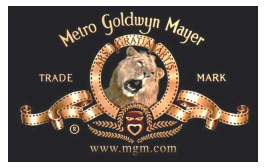 MGM will be bringing their movie library of over 4,000 titles to a hi-def cable network called MGM HD. DirecTV has already signed a deal to carry the new network. It will be advertiser supported.
MGM will be bringing their movie library of over 4,000 titles to a hi-def cable network called MGM HD. DirecTV has already signed a deal to carry the new network. It will be advertiser supported.
Harry Sloan, chairman and CEO of MGM said “The growth of the MGM library and the further expansion of the MGM channels worldwide are the studio’s primary objectives.” MGM already owns movie networks in over 100 other countries.
Eventually the Channel will add movie related promotional content, but at the beginning they'll concentrate on the movies themselves.
DirecTV executive Derek Chang says the satellite television provider intends “to launch up to 100 HD channels by the end of the year.” With the mandatory switch from analog to digital television getting closer, and the number of HDTV viewers growing this seems like an obvious move.
Source: Variety
Written by Rich Fiscus @ 17 Sep 2007 8:21
 After reading statements made by U.S. Register of Copyrights Marybeth Peters it shouldn't surprise anyone to find out that she's a self described luddite who doesn't even have a computer at home. Short of being in a coma since the law went into effect in 1998, that's the only explanation for saying "I think it did what it was supposed to do," which is what she recently told an audience at the Future of Music Policy Summit.
After reading statements made by U.S. Register of Copyrights Marybeth Peters it shouldn't surprise anyone to find out that she's a self described luddite who doesn't even have a computer at home. Short of being in a coma since the law went into effect in 1998, that's the only explanation for saying "I think it did what it was supposed to do," which is what she recently told an audience at the Future of Music Policy Summit.
Just a cursory glance at recent DMCA activity finds clear evidence of organizations abusing the law's takedown provision to force the removal of material that they have no legal claim to. Last week Timothy Vernor filed a lawsuit against CAD software maker Autodesk for repeatedly sending takedown requests requiring eBay to remove his auction of a perfectly legal copy of AutoCAD. Without the DMCA they would have had to take him to court and convince a judge that the wording of their license agreement, which Vernor couldn't have even read before opening the software package, carries the legal weight to void the first sale principle which gives him the right to re-sell legally purchased copyrighted products. The first sale doctrine has proven very resilient to legal challenges, and would require much more than Autodesk's word, which is all it took to repeatedly thwart his attempts to sell the software on eBay under the DMCA. After several complaints from the software company his eBay account was suspended, stopping him from selling anything on the site for a month.
Read more...
Written by Rich Fiscus @ 17 Sep 2007 6:23
 The CRIA, Canada's equivalent of the RIAA, has changed their position on a copyright tax for MP3 players. Although they've been in favor of extending a levy already collected from the sale of CD-Rs and audio tapes to apply to portable music players, they've now decided to come out against the idea.
The CRIA, Canada's equivalent of the RIAA, has changed their position on a copyright tax for MP3 players. Although they've been in favor of extending a levy already collected from the sale of CD-Rs and audio tapes to apply to portable music players, they've now decided to come out against the idea.
The reason is simple. The CRIA is afraid that by paying the tax, consumers would expect to get what they're paying for. While the CRIA believes such a tax only gives individuals the right to copy muisc they've already paid the music industry for, according to law professor Michael Geist the relevant case law say otherwise. Based on past court decisions, consumers would be entitled to download music from places like P2P networks for their players.
In an affadavit filed in Canada's Federal Court of Appeal challenging a decision by the Copyright Board of Canada to extend the levy to portable music players, CRIA President Graham Henderson said adoption of the levy "could potentially be interpreted to allow the copying of music files from any source - whether legitimate or illegitimate - onto any type of device ordinarily used by individuals to copy music." In other words when consumers pay for a license they'll expect to get some music to go with it.
Read more...
Written by Rich Fiscus @ 17 Sep 2007 10:07
 Media analysts at Screen Digest believe that Blu-ray and HD DVD will both be around until at least 2011, and suggests that studios supporting only one or the other will only be harming their own bottom line.
Media analysts at Screen Digest believe that Blu-ray and HD DVD will both be around until at least 2011, and suggests that studios supporting only one or the other will only be harming their own bottom line.
"Christmas 2007 is going to be critical for the hi-def video business," says Richard Cooper, Screen Digest Video Analyst. "Both formats will be seeking to secure consumer buy-in to their proposition during the critical holiday season but with so much at stake on both sides we think it is highly unlikely that one format will emerge as the winner." He added "We believe that eventually most will decide to offer their titles on both HD DVD and Blu-ray in order to maximize their returns."
With all the rhetoric from supporters of both formats, it's easy to miss the fact that neither has sold enough hardware or content to be close to claiming victory. Many consumers don't have the hi-def displays required to take advantage of either format, and even among those who do confusion is rampant about what they are. Recent surveys indicate a commonly held misconception that a standard DVD player already supplies hi-def content when connected to an HDTV.
Read more...
Written by Rich Fiscus @ 17 Sep 2007 8:53
 A new line of set-top boxes described as a digital media receivers (DMRs) from OEM manufacturer Digeo is expected to be available from select retail outlets in the U.S in time for this year's holiday shopping season. The boxes, which will be marketed under the Moxi brand currently distributed only to cable providers, will combine DVD playback, digital cable reception, DVR, IPTV, and music jukebox features.
A new line of set-top boxes described as a digital media receivers (DMRs) from OEM manufacturer Digeo is expected to be available from select retail outlets in the U.S in time for this year's holiday shopping season. The boxes, which will be marketed under the Moxi brand currently distributed only to cable providers, will combine DVD playback, digital cable reception, DVR, IPTV, and music jukebox features.
Digeo CEO Michael Fidler believes that the units, which can not only receive and store digital media, but also control non-A/V systems like lighting, climate control, and security. Some units will also be able to supply content to thin-client hardware that can be located in different rooms. One of the key selling points of the boxes, according to Fidler, will be the unified GUI provided to control all of the DMR's features via remote control.
"We have very modest goals for the product," said Fidler. "We think it is establishing a new category. We know that TiVo has been out there with their product starting that, and this is a great new opportunity for retailers, who really haven't participated in the cable industry at all, until the availability of a national umbrella [CableCARD] that allows this product to be sold in any retailer in the country [or] to any operator in the country."
Read more...
Written by Rich Fiscus @ 17 Sep 2007 6:40
 MediaDefender, the company caught offering virus laden movie downloads, presumably on behalf of their client MPAA, has been embarrassed again when internal emails detailing the company's operations became available via Bittorent after an employee apparently forwarded them to his Gmail account. The worst part for the company, not to mention the MPAA, is that the emails directly contradict company statements about their ill-advised, and ill-fated MiiVi site, which was taken down after reports of its MediaDefender/MPAA affiliation.
MediaDefender, the company caught offering virus laden movie downloads, presumably on behalf of their client MPAA, has been embarrassed again when internal emails detailing the company's operations became available via Bittorent after an employee apparently forwarded them to his Gmail account. The worst part for the company, not to mention the MPAA, is that the emails directly contradict company statements about their ill-advised, and ill-fated MiiVi site, which was taken down after reports of its MediaDefender/MPAA affiliation.
In a text file distributed with the download, a group calling themselves MediaDefender-Defenders claims responsibility for releasing the emails, saying "we hope this is enough to create a viable defense to the tactics used by these companies."
When the story originally broke, MediaDefender's position was that the site was created purely for internal company use and that any distribution of viruses to Bittorent users' computers was unintentional, a story very few people believed. With the release of these emails all doubt about their dishonesty has been removed. They clearly show that not only was MediaDefender intentionally offering their torrents to the public, but they were also looking for ways to promote the site while hiding its affiliation with the company.
Read more...
Written by Rich Fiscus @ 16 Sep 2007 9:42
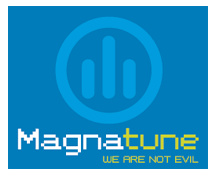 Magnatune, a record label founded in 1999, is using Creative Commons licenses and a flexible pricing model to provide music via the web. Consumers have the option to either listen online with announcements between tracks or get a copy, either via download or CD delivered by mail, for a fee.
Magnatune, a record label founded in 1999, is using Creative Commons licenses and a flexible pricing model to provide music via the web. Consumers have the option to either listen online with announcements between tracks or get a copy, either via download or CD delivered by mail, for a fee.
"What I'm finding is in an era now when we're all connected to the internet a lot, people don't really want to download music because then you have to manage it, you have to download it and make sure you don't lose it and if your computer blows up you have to go and re-download it," said John Buckman, founder of Magnatune. "What people want is access to music."
The most unusual aspect of Magnatune is that consumers can decide how much they'll pay for downloading a CD. Although they can choose to pay anywhere from $5 to $18, Buckman says the average is a somewhat surprising $8.40. CD purchases are also charged a shipping fee, although customers purchasing in that format can also download their music while waiting for the CD to arrive.
Buckman says "they really don't get anything more for paying more other than feeling like they're doing the right thing, but the reality is today nobody really needs to pay for music at all. If you choose to hit the 'buy' button at Magnatune then you're one of the people who has decided to actually pay for music. Shouldn't we reflect that honest behaviour back and say, well, if you're one of the honest people how much do you want to pay?"
Read more...
Written by Rich Fiscus @ 16 Sep 2007 9:14
 At a conference of porn producers, attorneys, and other prominent industry figures, discussions were held on reducing the rampant piracy faced by the industry today.
At a conference of porn producers, attorneys, and other prominent industry figures, discussions were held on reducing the rampant piracy faced by the industry today.
Even though porn piracy has been rampant on the internet for years, and some would even say the porn industry was the driving force in technological innovation for years, falling sales have led the industry to look for a way to stop unauthorized sharing of their videos.
According to attorney Greg Piccionelli, "The lack of enforcement over the years has left the pirates and consumers with the impression that copying and stealing adult content is something that has absolutely no punitive consequence associated with it whatsoever, and so the industry has really sort of dug its own grave to this degree."
Despite sounding a lot like more mainstream media companies, whose only thought in the beginning was to solve piracy problems with DRM, Piccionelli doesn't believe that's a legitimate solution. "I worry about [the producers] coming up with DRM or technological solutions, because they're not going to work," he said.
Source: Ars Technica
Written by Rich Fiscus @ 16 Sep 2007 8:40
 After a recent meeting between Steve Jobs of Apple and Martin Winterkorn, CEO of Volkswagen, rumors have been circulating that the two companies are working on a so-called iCar that would include some kind of built in iPod media player.
After a recent meeting between Steve Jobs of Apple and Martin Winterkorn, CEO of Volkswagen, rumors have been circulating that the two companies are working on a so-called iCar that would include some kind of built in iPod media player.
Although the growing market for automotive entertainment devices is expected to be a $50 billion dollar industry by the year 2012, a partnership between the two companies might not make as much sense as it appears on the surface.
In addition to the much longer development cycle for cars vs. iPods, there are many fundamental issues that would need to be addressed for such an arranement to be workable. The automotive industry is a much more traditional business than either computers or consumer electronics. Innovation isn't generally considered as importance as reliability and tradition - values that leave a company like Apple defenseless against their competition. On a related note, unless upgrades were reasonably easy, car buyers could be left with obsolete iPods in their cars for most of the time they're being driven - not particularly helpful for resale value.
Another potential issue is the warranty. Standard automotive warranties run many times the expected life of an iPod, and it could end up being very costly for Apple.
Read more...
Written by Rich Fiscus @ 16 Sep 2007 8:12
 The advice for broadcasters from media companies around the world is to get content online and be innovators. It was delivered at the Royal Television Society convention in Cambridge.
The advice for broadcasters from media companies around the world is to get content online and be innovators. It was delivered at the Royal Television Society convention in Cambridge.
"(There are) huge rewards for those who innovate, death for those who don't," said Peter Chernin, president and chief operating officer of News Corp.
"Right now there are more than 300 million people around the world watching video content online. It's a fundamental shift that completely democratizes our business. And democracy can be scary, especially when we've been used to living in a totalitarian state".
This mirrors consumer opinions, and not just when it comes to television. The public has been sending that message with regard to digital content for the better part of a decade.
BSkyB Chief Executive James Murdoch said "The key thing for us is about not having anxiety to change but having a real appetite for it," he said. "You (need) a bigger appetite for risk, a bigger willingness to fail."
Certainly no one knows for sure what a successful business model for digital content delivery will be. If broadcasters and othe media companies don't adapt to take advantage of new technology someone else will, and that's possibly the biggest risk of all.
Read more...
Written by Rich Fiscus @ 16 Sep 2007 7:34
 In a move sure to bring more accusations from open source advocates, the BBC's iPlayer development team has added a former executive from Microsoft's digital media division.
In a move sure to bring more accusations from open source advocates, the BBC's iPlayer development team has added a former executive from Microsoft's digital media division.
iPlayer is the name of the BBC's media player designed to be used for downloading their shows for later viewing. When it was released to a Limited number of viewers earlier this year it was surrounded by contreversy, in part due to the lack of support for non-MS operating systems like Linux.
In addition to the hiring of Jon Billings last week, the project also has Microsoft ties in the the form of BBC future media and technology group head Erik Huggers. At one time Huggers was Microsoft's digital media director.
Other users were upset because of the BBC's poor explanation that the July release would only be available to a limited number of people, and that the player's pre-release status meant it still had more than a few bugs.
Source: The Register
Written by Rich Fiscus @ 15 Sep 2007 2:02
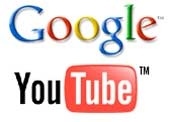 According to a new study from comScore, online video viewership in the United States is steadliy increasing. Nearly 75% of internet users in the U.S. watched video online in July, up from just over 71% in March.
According to a new study from comScore, online video viewership in the United States is steadliy increasing. Nearly 75% of internet users in the U.S. watched video online in July, up from just over 71% in March.
Not only are more people watching video, but the amount of time they watch for is increasing. July's numbers showed an increase of nearly 25% in the time spent watching online video, while the number of clips viewed increased by around two billion clips.
Among video providers Google was the clear winner supplying more than 27% of the clips viewed in July, primarily from viral video site YouTube. Yahoo followed very distantly, serving up over 4%. In total, 134 million people watched over 9 billion clips.
Ironically, the recent boom in internet video is largely due to the explosion of YouTube, and is generally credited to the availabillity of copyrighted works, the same thing that has Google in court defending them against infringement claims by Viacom.
Source: Computerworld
Written by Rich Fiscus @ 15 Sep 2007 12:42
 Hoping to revolutionize anti-piracy efforts for online video, Philips Content Identification is working on building the world's largest video fingerprinting database.
Hoping to revolutionize anti-piracy efforts for online video, Philips Content Identification is working on building the world's largest video fingerprinting database.
"The system in use at the moment from other technology suppliers are all re-active, whereas ours is pro-active” says Philips CEO Alex Terpstra. The systems he refers to are already in place or planned for viral video sites. They rely on reports from outside, such as DMCA takedown notices, to identify pirated video, after which can then be rejected whenever someone attempts to post it again.
According to Terpstra, the goal is to be able to identify virtually any clip of professionally produced video from just a five second sample.
Philips also announced that their technology will be powering Dolby Labs' new digital cinema watermarking technology.
"We are already dominant in digital cinema watermarking," said Terpstra, "with Christie, Dolby and XDC using our system. Thomson has its own technology, but ours is already in 3,000 digital cinemas and anyway Thomson’s Technicolor uses our technology in its special "Screener" copies of DVDs that go out to Film Academy members voting on the Oscar nominations."
Read more...
Written by Rich Fiscus @ 15 Sep 2007 12:25
 Consumer technology analysis firm Parks Associates sees DVDs, diversity, ads, and set-top boxes as keys to successful digital video delivery.In a recent report they looked at a variety of technolgies ranging from broadcast television and DVRs to video Streaming and downloads and came to a number of conclusions, many of which match conclusions in a similar report from last year.
Consumer technology analysis firm Parks Associates sees DVDs, diversity, ads, and set-top boxes as keys to successful digital video delivery.In a recent report they looked at a variety of technolgies ranging from broadcast television and DVRs to video Streaming and downloads and came to a number of conclusions, many of which match conclusions in a similar report from last year.
Among their chief observations was the amount of diversity in delivery channels for video, not just between companies, but often within a single company. For example, although Netflix and Blockbuster both have internet DVD rental servivces, Netflix also operates a streaming service for their customers, while Blockbuster is purchasing online movie service Movielink and already has the largest chain of brick and mortar DVD rental outlets in the U.S.
Another interesting observation regards the success of ad supported video while user paid content seems to be floundering. Despite resistance to this new model from many sides, from television network and viral video sites are having a much easier time courting advertisers than commercial content providers trying to find customers. Of particular note was Google's decision to drop Google Video months after acquiring YouTube.
Read more...
Written by Rich Fiscus @ 15 Sep 2007 11:28
 With CD sales plummeting, Universal Music Group is reportedly considering a subscription based model for music downloads. It would create a P2P network for subscribers to freely share DRM free music files.
With CD sales plummeting, Universal Music Group is reportedly considering a subscription based model for music downloads. It would create a P2P network for subscribers to freely share DRM free music files.
Unlike current subscription services like Rhapsody and Napster, Universal's proposed service called TotalMusic would be sold to ISP's rather than individuals. Under the proposal, ISPs would be forced to buy the service for all their customers, which would also require them to raise rates. While this would likely be a good deal for individuals who want the service, it would likely cause any ISP subscribing to the service to lose customers who don't want to pay extra for something they don't use.
While the general premise of a subscription model and P2P delivery seems sound, it's hard to believe that many ISPs will have enough customers interested in getting music from UMG to make it successful. However, with similar ideas coming from Columbia Records chairman Rick Rubin, it may only be a time before a more realistic service that involves all the major labels at least gets tested.
Read more...
Written by Rich Fiscus @ 15 Sep 2007 10:43
 News Corp president and CEO, Peter Chernin, is expecting tough negotiations with Apple over licensing television programs for iTunes.
News Corp president and CEO, Peter Chernin, is expecting tough negotiations with Apple over licensing television programs for iTunes.
"We have a pretty Limited relationship with Apple and we'll see how it goes," Chernin told the UK's Royal Television Society convention. "I assume it will be prickly and dicey and contentious like all negotiations are and like all negotiations should be."
Apple has come under increasing pressure from music and video suppliers to move iTunes toward a more flexible pricing model. Last month NBC Universal announced that they didn't intend to renew their contract to distribute television shows through the online store.
The real division seems to stem from a difference in where Apple makes money compared to the entertainment companies. Despite being the leading online music distributor, iTunes' primary purpose for Apple is selling iPods. That means they don't need to make a big profit on media sales as long as they sell more than their competitors. Toward that end, they've tried to keep iTunes pricing as simple as possible, believing that's the most important factor in keeping customers.
Read more...
Written by Rich Fiscus @ 14 Sep 2007 7:07
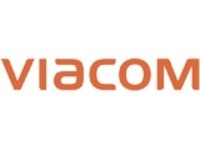 Viacom has backed down from a DMCA takedown notice over a video posted to YouTube by a school board candidate in North Carolina after he filed a counter-complaint stating that the content posted to the viral video site belonged to hiim.
Viacom has backed down from a DMCA takedown notice over a video posted to YouTube by a school board candidate in North Carolina after he filed a counter-complaint stating that the content posted to the viral video site belonged to hiim.
Last year Christopher Knight ran a television ad promoting his candidacy for local office. After seeing a big reaction to the ad on television, he decided to post it to YouTube. That's where the story gets interesting. After the video showed up on YouTube it also appeared on a television show called Web 2.0 on Viacom owned VH-1.
Despite not being asked for permission to air the clip, Knight was excited about the exposure, saying "I'm delighted that as a proud son of Rockingham County, I got worldwide exposure for this."
Unfortunately, when he returned the favor and posted his video's Web 2.0 appearance on YouTube, Viacom wasn't nearly as flattered. That's when they they sent YouTube a DMCA takedown notice for a video of their show arguably pirating Knight's work. While there was a small amount of video clearly owned by Viacom, most of it was Knight's own video, which Web 2.0 used without getting authorization first.
Read more...
Written by Rich Fiscus @ 14 Sep 2007 8:39
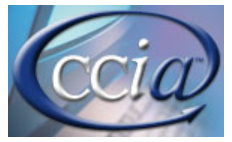 According to a study from the Computer and Communications Industry Association (CCIA) concludes that fair use is responsible for nearly 17% of U.S. GDP in 2006 and employs approximately 1/8 of the American workforce. Comparing data from 2002 and 2006, the study concluded that not only is fair use an important source of profits, but those profits are growing.
According to a study from the Computer and Communications Industry Association (CCIA) concludes that fair use is responsible for nearly 17% of U.S. GDP in 2006 and employs approximately 1/8 of the American workforce. Comparing data from 2002 and 2006, the study concluded that not only is fair use an important source of profits, but those profits are growing.
The study was a response to several others that have been published in the last few years that attempt to quantify the economic importance of copyright. Those studies have been done using guidelines created by the WIPO (World Intellectual Property Organization), a United Nations agency tasked with helping protect intellectual property internationally. However, this is the the first study to use those guidelines to evaluate fair use related industries.
An interesting aspect of the study is that it outlines many uses for copyright content that the average person doesn't generally think about. It points out that many businesses might not even be able to operate without copyright exemptions. These companies, which are referred to (per WIPO guidelines) as "core industries," include software developers, broadcasters, and media outlets.
Read more...
Written by Rich Fiscus @ 12 Sep 2007 10:35
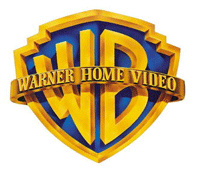 Despite reports of lucrative offers to follow Paramount's lead and get behind HD DVD exclusively, Waner Home Video president Ron Sanders says competitive sales of both formats are likely to ensure they release titles in both formats.
Despite reports of lucrative offers to follow Paramount's lead and get behind HD DVD exclusively, Waner Home Video president Ron Sanders says competitive sales of both formats are likely to ensure they release titles in both formats.
In an interview with This Week In Consumer Electronics, Sanders answered questions about the future of HD at Warner, saying "we’re talking to both sides and it’s crazy right now. We remain committed to both for the time being. We’ll see how the fourth quarter plays out. The consumer is still kind of divided, and we still believe that we should offer the content in both formats. Now, we will watch the marketplace very closely, and see how it plays out, but for now we are supporting both."
He called the current situation between HD DVD and Blu-ray "a Mexican standoff", and indicated that his company doesn't really care which side wins, as long as people are buying some kind of players so they can sell whatever kind of discs they play.
Read more...
Written by Rich Fiscus @ 12 Sep 2007 10:32
 Former Viacom executives Tom Freston and Jonathan Dolgen have joined Micheal Eisner and others as backers of viral video company Veoh Networks.
Former Viacom executives Tom Freston and Jonathan Dolgen have joined Micheal Eisner and others as backers of viral video company Veoh Networks.
Both men are currently advisors to various media companies, including Viacom in Dolgen's case. Between them they also have quite a bit of experience running studios including Sony and Fox in addition to Viacom.
Veoh executives are hoping that adding the pair of Hollywood insiders will ultimately help them establish relationships with potential content providers.
"As Internet television is becoming an increasingly large part of viewers' media experience, it's important for traditional and new media companies to work together to deliver the most engaging content possible," said Steve Mitgang, CEO of Veoh Networks. "These new team members, along with our existing advisors, will help us build the bridges between historic and emerging media business models that are necessary to drive even more innovation and greater variety in Internet Television."
Source: Yahoo Finance
Written by Rich Fiscus @ 12 Sep 2007 4:42
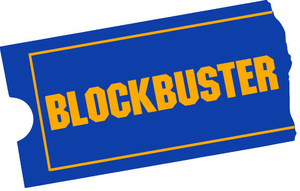 In an attempt to save money, Blockbuster's Chief Operating Officer position has been eliminated, and senior executive Vice President Nick Shepherd let go, although he will remain as a consultant through year's end.
In an attempt to save money, Blockbuster's Chief Operating Officer position has been eliminated, and senior executive Vice President Nick Shepherd let go, although he will remain as a consultant through year's end.
James Keyes, the company's chairman and CEO since July, was brought in because board members felt former head John Antioco's plans to compete with internet based rental rival Netflix. As Shepherd leaves, two senior positions will be filled by Keith Morrow and David Podeschi, both of whom worked with Keyes at his former employer, 7-Eleven.
"Nick's position of chief operating officer is being eliminated. There's no other senior level role in the business," said Karen Raskopf, senior VP of corporate communications. "Nick has opted to leave Blockbuster to achieve his stated ambition to pursue broader executive responsibilities. He'd like to lead a company as CEO."
Jeff Embersits, an analyst at Shareholder Value Mangement said that Blockbuster hiring both a CIO (Morrow), and someone to be in charge of merchandising, distribution, and logistics is possibly an attempt to better position themselves to compete with Netflix.
Read more...
Written by Rich Fiscus @ 12 Sep 2007 10:45
 A U.S. Federal Appeals Court upheld a lower court's refusal to grant a default judgement against two men accused of pirating DirecTV. The judgement, if granted, could have made each man liable for up 10,000 simply for inserting a reprogrammed smart card into their DirecTV receivers, and another $10,000 for modifying the cards. This doesn't shield them from up to $10,000 in damages for intercepting an encrypted satellite signal using modified smart cards, but does clearly draw a clear line between personal and commercial piracy penalties.
A U.S. Federal Appeals Court upheld a lower court's refusal to grant a default judgement against two men accused of pirating DirecTV. The judgement, if granted, could have made each man liable for up 10,000 simply for inserting a reprogrammed smart card into their DirecTV receivers, and another $10,000 for modifying the cards. This doesn't shield them from up to $10,000 in damages for intercepting an encrypted satellite signal using modified smart cards, but does clearly draw a clear line between personal and commercial piracy penalties.
The original decision also noted that smart card itself doesn't qualify as a device "primarily of assistance in the unauthorized decryption of satellite cable programming, or direct-to-home satellite services" as the law requires. The card itself is primarily used by legitimate DirecTV customers to lawfully receive broadcasts.
In the court's opinion, one of the three judges involved in the 2-1 decision noted that DirecTV's original claim that simply inserting the removable smart card into a DirecTV receiver constitutes "assembling a piracy device" would, if upheld, blur the distinction between commercial and personal penalties.
Read more...
Written by Rich Fiscus @ 11 Sep 2007 7:41
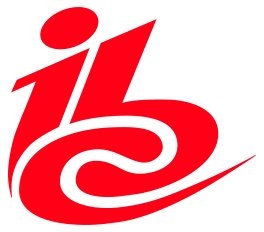 This year's International Broadcasting Conference (IBC), which raps up today in Amsterdam, has been all about how to deliver content digitally in nearly every conceivable way. From Streaming over broadband to mobile devices to movie theaters, the focus has been on creating digital media and getting it to consumers. Right now the biggest buzz seems to be around IPTV.
This year's International Broadcasting Conference (IBC), which raps up today in Amsterdam, has been all about how to deliver content digitally in nearly every conceivable way. From Streaming over broadband to mobile devices to movie theaters, the focus has been on creating digital media and getting it to consumers. Right now the biggest buzz seems to be around IPTV.
With all the media hype surrounding the emerging supply of video available everywhere from viral video sites like YouTube to the BBC's iPlayer, it shouldn't surprise anyone that broadcasters want a piece of the action. And they're not the only ones. Technology companies like Microsoft are there hoping to cash in on the expanding market with media delivery solutions and encoding technology.
"The emergence of mobile TV and IPTV alongside conventional multi-channel television is creating new opportunities and challenges for everyone involved in the creation, management and delivery of content," said Mike Crimp, Marketing Director of IBC. "With its extensive programme of mobile and IPTV-related events, IBC2007 provides a unique opportunity for broadcast and telecoms professionals alike to discover the keys to success in this increasingly multi-platform environment."
Read more...
Written by Rich Fiscus @ 11 Sep 2007 7:08
 FCC Chairman Kevin Martin wants the agency to require cable companies to guarantee support for their customers' analog televisions after the 2009 switch to digital broadcasts over the air.
FCC Chairman Kevin Martin wants the agency to require cable companies to guarantee support for their customers' analog televisions after the 2009 switch to digital broadcasts over the air.
"Unless the commission acts, some cable customers may actually be harmed by the transition and lose the ability to view some of these channels," Martin told The Associated Press on Monday.
In February of 2009 analog television owners will be eligible for a government subsidy to buy analog converter boxes so they can continue to watch TV. The subsidy, however, is targeted toward people who receive broadcasts over the air.
Cable providers could solve the problem by supplying customers with their own analog converters, and industry representatives have assured the FCC that their customers with analog TVs will still be able to watch them after the digital cutover, but Martin feels it should be required by FCC rule.
A National Cable Television Association (NCTA) expressed outrage at the proposal, saying "We've said we will voluntarily take care of our customers, which is different than a government mandate."
The FCC is scheduled to meet today, and will likely be discussing the issue.
Read more...
Written by Rich Fiscus @ 10 Sep 2007 6:19
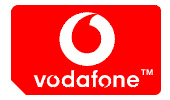 Vodafone today became the latest mobile phone provider to get into the music download business.
Vodafone today became the latest mobile phone provider to get into the music download business.
Although analysts had been expecting a deal that would make Vodafone the exclusive retailer of the iPhone across Europe, instead the company accompanied the introduction of their new music store with a look at new phones they'll be selling to go along with it. In place of the iPhone they've decided to go with Samsung's F700 smartphone.
Like the iPhone, the F700 has a touchscreen, but it also features support for 3G downloading. This means faster download speeds, which is an area where the iPhone has been criticized. Jens Schulte-Bokum, head of the global terminal division at Vodafone, said "we regret that the iPhone, initially, won't support 3G, which we believe is necessary to deliver a compelling music and Internet experience."
British company Omnifone will provide Vodafone customers with unlimited tracks from their catalog of over 1 million songs for £1.99 a week.
Sources:
Computerworld
Reuters
Written by Rich Fiscus @ 10 Sep 2007 5:44
 The music industry has once again decided the reason people aren't spending as much money on their product is packaging. In order to correct this perceived packaging shortfall they've decided to introduce a new format called the ringle.
The music industry has once again decided the reason people aren't spending as much money on their product is packaging. In order to correct this perceived packaging shortfall they've decided to introduce a new format called the ringle.
A ringle is a CD single containing a couple of songs and a credit to get a ringtone from some third party provider. With the exception of Sony BMG, all the major labels are still working on deals with ringtone providers.
The format is expected to launch next month. Sony plans to start selling 50 titles during October and November, while Universal Music should have 10-20.
Major retailers from Wal-Mart to Amazon.com are already planning to support the format, which is expected to have a profit margin for them either slightly less or slightly more than CDs, depending on the suggested retail price.
Like other music industry efforts in the last several years, this does nothing to increase the amount or improve the quality of new music releases. Perhaps this time around it will turn out differently than all the rest.
Source: Reuters
Written by Rich Fiscus @ 09 Sep 2007 7:57
 Universal Music Group's legal tactics are under fire again. This time the heat is coming from DivX, Inc., developer of both the DivX MPEG-4 Codec and a viral video service called Stage6.
Universal Music Group's legal tactics are under fire again. This time the heat is coming from DivX, Inc., developer of both the DivX MPEG-4 Codec and a viral video service called Stage6.
Apparently following the lead of relative newcomer to the viral video scene, Veoh Networks, DivX is suing Universal after being accused of copyright infringement, but not yet sued. Another striking similarity to the Veoh case is Universal's apparent lack of interest in using the DMCA's mechanism of takedown notices to get videos that supposedly violate copyright removed.
Based on an earlier situation with YouTube, which ended in Universal dropping a copyright violation suit and signing a licensing agreement, one obvious possibility that the ongoing accusations are part of a negotiation strategy using legal action to arrange for better financial terms. However, it's possible that their strategy is simpler than that. As billionaire and internet innovator Mark Cuban noted in a recent interview, the protection offered by DMCA safe harbor provisions may not even apply to viral video websites.
Read more...
Written by Rich Fiscus @ 09 Sep 2007 6:44
 Some former Comcast customers would like to know how much bandwidth is too much. Even after having their internet service disconnected for excessive downloading, the cable company won't reveal at what point they crossed the line.
Some former Comcast customers would like to know how much bandwidth is too much. Even after having their internet service disconnected for excessive downloading, the cable company won't reveal at what point they crossed the line.
Bob Williams, director of HearUsNow.org, a consumer Web site run by Consumers Union, said the vagueness of Comcast's rules is "unfair and arbitrary."
"They're cutting service off to the people who want to use it the most," he said.
Just last month, Comcast spokesman Charlie Douglas said in an interview that the company contacts subscribers to work out bandwidth use issues, but Sandra Spalletta believes their communication is lacking in important details. She says "You have no way of knowing how much is too much," referring to her family's experience earlier this year. In March she received a letter from Comcast warning her to cut bandwidth use or lose their service. Despite cutting back, her service was disconnected anyway.
"You want to think you can rely on your home Internet service and not wake up one morning to find it turned off," said Spalletta, who filed a complaint with the Montgomery County Office of Cable and Communication Services. "I thought it was unlimited service."
Read more...
Written by Rich Fiscus @ 08 Sep 2007 3:44
 Apple is apparently considering a cut in TV show download prices. Sources familiar with their proposal have said Apple is informing television networks that they'd like to cut prices on most television episodes to the same $0.99 price most of their songs sell for.
Apple is apparently considering a cut in TV show download prices. Sources familiar with their proposal have said Apple is informing television networks that they'd like to cut prices on most television episodes to the same $0.99 price most of their songs sell for.
In a recent and very public recent dispute with NBC Universal that included sales rights for television shows, Apple claimed that the studio wanted to increase prices while NBC said they simply didn't want a flat rate. Apple has been very clear in the past that they believe simple pricing is an important part of the iTunes business model.
Apple's insistence on any particular price model raises the question of how good an idea it is for a seller to dictate price to producers. Certainly a better deal for consumers may be one result, which is what Apple is betting on. However, it's also undeniable that not everything carries equal value to viewers. If other studios decide to follow NBC Universal's lead in taking their business, and content, to other outlets, Apple may have to compromise more on pricing.
The idea of across the board price cuts surely doesn't sit well with studio executives, but a reasonably simple two or three tiered price structure, allowing popular shows to sell for as much as, or more than they do currently might net more interest in the lowered prices among studio executives.
Read more...
Written by Rich Fiscus @ 08 Sep 2007 1:58
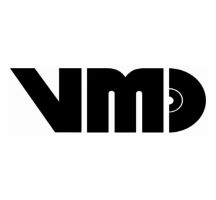 New Media Enterprises (NME) is betting on the cost effectiveness of red laser video players to beat both HD DVD and Blu-ray in the next-generation format wars, and they're backing it up with a format called Versatile Multilayer Disc. At the CEDIA show this week in Denver, Colorado they showed off HD VMD, which puts high definition video on a VMD disc.
New Media Enterprises (NME) is betting on the cost effectiveness of red laser video players to beat both HD DVD and Blu-ray in the next-generation format wars, and they're backing it up with a format called Versatile Multilayer Disc. At the CEDIA show this week in Denver, Colorado they showed off HD VMD, which puts high definition video on a VMD disc.
Unlike HD DVD and Blu-ray, which rely on the blue lasers to put more data on each layer of an optical disc, VMD simply adds more layers to reach up to 30GB on a single sided disc. That's the same capacity as a dual layer HD DVD disc, and HD VMD's 40Mbps maximum bitrate falls in between HD DVD and Blu-ray.
By choosing to push current generation technology further instead of leaving it behind, NME has come up with a format that's much cheaper to produce, and therefore for consumers to buy. In fact, the first generation players are expected to retail for as low as $150, or half what the lowest priced blue laser players cost right now.
At that price, HD VMD has another big advantage. The players should be priced reasonably enough for people who aren't going to take advantage of the format for a while, and will primarily use it for watching standard DVDs.
Read more...
Written by Rich Fiscus @ 07 Sep 2007 9:46
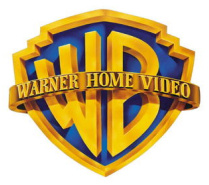 ABC Television will be making four shows produced by Warner Bros. available on the network's web-based media player.
ABC Television will be making four shows produced by Warner Bros. available on the network's web-based media player.
Shows the network produces for itself are already featured on ad supported site. It was the first broadcast network to make its prime time shows available this way.
The deal gives ABC rights to stream episodes from the Warner shows "Men in Trees", "Notes from the Underbelly", "Big Shots", and "Pushing Daisies," keeping all the ad revenue for themselves. After the initial year, Warner can stream programs from the previous year themselves, in addition to distributing them on other media like DVD.
Episodes will be available on ABC's site for up to four weeks after airing on the network.
Source: Reuters
Written by Rich Fiscus @ 07 Sep 2007 7:43
 Microsoft has big hopes for the future of VC-1 video. In a press release today they highlighted some products based on their VC-1 Encoder software development kit (SDK).
Microsoft has big hopes for the future of VC-1 video. In a press release today they highlighted some products based on their VC-1 Encoder software development kit (SDK).
VC-1 has been hailed by many early adopters of next-generation video formats (Blu-ray and HD DVD) for delivering high image quality at a small file size, the lack of third party encoding tools has limited its use beyond those two media.
The products mentioned range from Memory-Tech Digital Movie Factory Pro HD for creating HD DVDs with VC-1 video to multiple format tools to Anystream Agility to prepare video in multiple formats for nearly any format, including broadcast.
The VC-1 Codec was originally developed as Microsoft was trying to break into high definition home theater. Since then, the company has been successful in getting it included as a mandatory format (meaning every player must be capable of playing it) for HD DVD and Blu-ray. The next market they want to conquer seems to be IPTV.
Read more...
Written by Rich Fiscus @ 07 Sep 2007 6:56
 A Florida man is suing Apple for violating the Florida Deceptive and Unfair Trade Practices Act by putting technical restrictions on iPods that he claims unfairly restrict competition. Frederick Black is upset that he can't use his iPod with online retailers other than iTunes or easily transfer content purchased from iTunes to other devices.
A Florida man is suing Apple for violating the Florida Deceptive and Unfair Trade Practices Act by putting technical restrictions on iPods that he claims unfairly restrict competition. Frederick Black is upset that he can't use his iPod with online retailers other than iTunes or easily transfer content purchased from iTunes to other devices.
He's hoping to get his suit certified as a class action, which would include all Florida residents who purchased either an iPod or songs from iTunes since 2001. Apple faces a similar suit in Federal court in California, which they've tried unsuccessfully to have dismissed.
According to Black's suit Apple restricts the use of iTunes digital media to the iPod or iTunes software. So if the iPod is lost or breaks, the suit says, a consumer "is forced to repurchase an iPod" or "lose the use of the iTunes content."
The suit adds that Apple "has attempted to maintain monopoly power," "has the power to control prices," and "has been able to exclude competition."
At the heart of the issue is something that affects consumers every day, and not just Apple's customers. The real question centers around the relationship betwen technology and the law. Regardless of whether DRM is an effective deterrent against piracy, it's clearly effective against the exercise of fair use rights. In the case of the iPod it also appears to be effective in making Apple the 800 pound gorilla of the music download industry.
Read more...
Written by Rich Fiscus @ 07 Sep 2007 5:59
 Universal Music Group is suing viral video site operator Veoh Networks for copyright infringement.
Universal Music Group is suing viral video site operator Veoh Networks for copyright infringement.
The suit, which is similar to those YouTube is currently defending itself against, has a somewhat unique twist. Less than two months ago Veoh Networks filed a suit of their own against Universal. That suit claimed the music giant had sent letters threatening legal action over copyright infringement, but included no specific details to back up that claim. Veoh's suit was intended as a pre-emptive strike to force Universal to back down.
At the time there was speculation that Universal was really looking for a licensing deal similar to the one they worked out with YouTube. Much like the situation with Veoh, in that case Universal filed a lawsuit, but then they dropped the suit after coming reaching an agreement on licensing. It's even possible this tactic may have gotten them more favorable terms, with the lawsuit hanging over YouTube's head being a good reason to come to agreement or else.
While Universal's new suit calls Veoh "a massive copyright infringer that has built its business on the back of others' intellectual property," it's possible that the music company's lack of specifics to the video site may be their undoing.
Read more...
Written by Rich Fiscus @ 07 Sep 2007 5:25
 The US Justice Department suddenly feels the need to weigh in on the net neutrality debate. In short, they're against it.
The US Justice Department suddenly feels the need to weigh in on the net neutrality debate. In short, they're against it.
In comments submitted to the Federal Communications Commision in that agency's official discussions, the DoJ said net neutrality "could deter broadband Internet providers from upgrading and expanding their networks to reach more Americans." This raises many questions, not the least of which is whether this is a false crisis caused by greedy ISPs marketing their networks beyond capacity.
As broadband connections become the norm among residential broadband customers, those customers want to make use of applications like Streaming video - the same applications broadband internet providers use as selling points. But the fact is many ISPs don't have enough available throughput to handle a large percentage of their customers streaming reasonable qualtiy video. Another fact is that most people are paying for a maximum speed that their connection may not actually achieve.
In order for large scale consumption of high quality video and audio to become a reality it's fair to assess whether existing internet connections are capable of handling it. It's also fair to ask what needs to be done to get the network ready. But painting ISP's as victims of greedy internet companies is simply ludicrous.
Read more...
Written by Rich Fiscus @ 06 Sep 2007 10:46
 At the CEDIA (Custom Electronics Design and Intallation Association) Expo Toshiba is announcing two new 1080p LCD televisions, as well as third generation HD DVD players.
At the CEDIA (Custom Electronics Design and Intallation Association) Expo Toshiba is announcing two new 1080p LCD televisions, as well as third generation HD DVD players.
The new 40" and 46" TVs, set to be shipped this month, are intended to be a step below Toshiba's Cinema Series. The pair should fit into more spaces with smaller bezel dimensions than the company's predecesors.
The 46-inch model is about an inch wider than a typical 42-inch LCD and shorter. The 40-inch model offers the same width as Toshiba’s 37-inch model (37.7 inches wide), meaning it will fit most armoires designed for 37-inch TVs, said Scott Ramirez, Toshiba TV group marketing VP. The side bezel Frame is less than an inch wide, whereas the standard frame is about twice that size, he said.
Ramirez indicates many consumers are looking for televisions they can fit into existing spaces, and current models aren't suitable for the job.
They also showed off their recently announced line of third generation HD DVD players. They range in price from $299 to $499 and include support for HDi networking, an HD DVD feature intended to link players to websites through interactive movie and menu content.
Read more...
Written by Rich Fiscus @ 06 Sep 2007 9:54
 The cable television industry wants to assure their customers that their TVs will continue to work after the 2009 mandatory switch to digital television.
The cable television industry wants to assure their customers that their TVs will continue to work after the 2009 mandatory switch to digital television.
In an attempt to get the message to consumers they're using a $200 million ad campaign featuring four spots that will be aired not only on cable networks, but also traditional broadcast television.
Actually cable customers aren't the group that should be most concerned with the transition to all digital signals. According to a 2005 Government Accountability Office, 21 million households get their television signal over the air, rather than through cable television or satellite.
Kyle McSlarrow, president and CEO of the National Cable & Telecommunications Association, said cable subscribers will not be affected, including those who subscribe to analog rather than the more expensive digital service.
Cable companies are not currently under any requirement to continue analog service after the digital transition, but the FCC may change that in a vote scheduled for Tuesday.
People watching SDTV, the standard analog signal most common right now, from an over the air signal will be forced to either purchase a converter box of some kind or a new digital television.
Read more...
Written by Rich Fiscus @ 06 Sep 2007 9:21
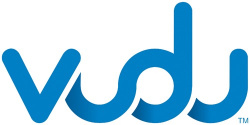 Wednesday a new Internet based Video On Demand (VOD) service called Vudu was launched. The service will offer over 5,000 movies from both major studios and independent filmmakers.
Wednesday a new Internet based Video On Demand (VOD) service called Vudu was launched. The service will offer over 5,000 movies from both major studios and independent filmmakers.
Customers must buy a Vudu set-top box, which is used to store the downloaded movies, which will include Dreamgirls and 300.
"Vudu is being introduced in an area that's had some tough history," said Kurt Scherf, analyst at Parks Associates. "It's been clear that the movie-on-demand model via the Internet has so far underperformed Hollywood studios expectations."
They aren't the first company to try making money at VOD, but others haven't seen a great deal of success. Just last year one big name, Movielink, was sold to Blockbuster, and may eventually become just an extension of the brick and mortar chain's internet rental service.
Vudu's set-top box model may be more successful simply based on consumer comfort. Delivery aside, the technology seems more DVR-like than the early services. Although other manufacturers like Apple (Apple TV) and Microsoft (Xbox Live) are already offering downloaded content, both are really marketed around proprietary devices (the iPod and Xbox 360) instead of just a television.
Read more...
Written by Rich Fiscus @ 06 Sep 2007 8:15
 Sony is making a case for Blu-ray at the CEDIA (Custom Electronics Design and Installation Association) Expo in Denver, Colorado this week.
Sony is making a case for Blu-ray at the CEDIA (Custom Electronics Design and Installation Association) Expo in Denver, Colorado this week.
The company unveiled two BD players and a 200 disc BD server product that can also burn 25GB Blu-ray discs.
The HES-V1000, which should be available this fall for a suggested retail price of $3,500. Besides holding 200 discs and a burner, it will also include a 500GB hard drive for storing music, photos, and even video.
It also has an ethernet connection and shares the XMB (Xross Media Bar) interface with the Playstation3 and PSP consoles. It can even stream to other devices, including the PS3.
Even though the price isn't within reach of many consumers, it seems to be a good fit with Sony's apparent goal to be the center of your living room.
Other products presented include Bravia SXRD projectors and the BDP-2000ES Blu-ray player with that supports 1080p and 24fps output.
Read more...
Written by Rich Fiscus @ 06 Sep 2007 7:00
 Pioneer will be releasing a third generation BD (Blu-ray) player in October, for a suggested retail price of $1,000.
Pioneer will be releasing a third generation BD (Blu-ray) player in October, for a suggested retail price of $1,000.
The BDP-95FD improves upon earlier incarnations of Pioneer players with the inclusion of the audio technology DTS-HD.
Other than the inclusion of DTS-HD, the unit will be very similar to their second generation DBP-94HD, including the expected price. The older model already includes 1080p playback at 24fps plus internal decoding of Dolby TrueHD.
Although Pioneer has yet to drop any of their BD player prices below $1,000, the company's management believes this is a good niche market for them.
“It’s definitely more expensive than the competition, but we are delivering a player that is delivering an uncompromised experience,” said Chris Walker, Pioneer’s senior manager of product planning and marketing. “In the past, our players were superior in picture quality, and now we can really say the same about the audio experience. We are giving you exactly what the director wanted you to experience from the picture and now audio standpoint.”
Read more...
Written by Rich Fiscus @ 05 Sep 2007 3:28
 Eli El of Blue Island, IL was sentenced to 30 months in federal prison for participating in a conspiracy to distribute pirated software on the internet.
Eli El of Blue Island, IL was sentenced to 30 months in federal prison for participating in a conspiracy to distribute pirated software on the internet.
In May El plead guilty to one count of conpiracy to commit criminal copyright infringement for helping distribute around 20,000 copyrighted works online.
So far Operation Safehaven, a 15 month investigation by U.S. Immigration and Customs Enforcement, has managed to get 12 convictions, including that of El, from the execution of more than 20 search warrants across the country according to the Department of Justice.
The U.S. Attorney's Office reports that El and his associates were active in the warez scene, and had privileged acces to a number of FTP servers hosting pirated software. They say in return for uploading illegal software he was allowed to download software pirated by other members of the warez group.
Source: Information Week
Written by Rich Fiscus @ 05 Sep 2007 3:15
 Over the next five years Linux is expected to be the fastest growing smartphone OS according to research firm ABI Research.
Over the next five years Linux is expected to be the fastest growing smartphone OS according to research firm ABI Research.
According to a study, Linux will have a compound annual growth raite of more than 75% by 2012.
"We were very aware that the growth in mobile for Linux was huge, but we didn't know it was so astronomic," said Amanda McPherson, marketing director for the Linux Foundation. "These are very encouraging numbers."
"These are very encouraging numbers." Why Linux has drawn significant support from the community of handset manufacturers can be explained on several fronts, McPherson said.
As mobile devices include more and more powerful applications, having one or more standard platforms for them to run on seems essential. Developing applications for things like media delivery almost requires that devices be compatible with each other. It's hard to imagine a more robust environment than Linux for them to use.
If this study is correct, we may see a software boom for such devices. That would ultimately be good for consumers, as well as potentially creating a new software market that would also be good for technology related industries.
Source: TechNewsWorld
Written by Rich Fiscus @ 05 Sep 2007 6:49
 ABC's Good Morning America is trying out a new model to expand their show. A week before NBC rival Today expands from three to four hours, Good Morning America is adding an hour to their show. The catch is you may not be able to see it.
ABC's Good Morning America is trying out a new model to expand their show. A week before NBC rival Today expands from three to four hours, Good Morning America is adding an hour to their show. The catch is you may not be able to see it.
Although the ABC News Now service is available as a cable channel in a tiny percentage of US homes, most would have to get it from their broadband internet or mobile phone provider.
ABC's dilemna is a product of their own success. Since "Live with Regis and Kelly", which immediately follows Good Morning America, is a successful show there was no way to add the additional hour of programming on the television network.
By moving the extra hour to a less traditional outlet like ABC News Now, they may have inadvertantly found a new distribution model. Supplementing a free product with paid "extras" may be a good way to get additional revenue from popular shows.
Of course, it may be that there isn't enough interest in their news service for this move to have an impact on consumers.
Source: Yahoo News
Written by Rich Fiscus @ 05 Sep 2007 6:11
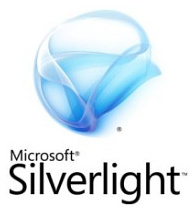 Today Microsoft will be releasing Silverlight 1.0. Silverlight is the web video plug-in they hope will compete with Adobe's Flash.
Today Microsoft will be releasing Silverlight 1.0. Silverlight is the web video plug-in they hope will compete with Adobe's Flash.
"We're finally shipping the plug-in," said Parimal Desphande, group product manager for the User Experience Platform and Tools team at Microsoft
They're also planning to participate in a Novell project to port Sliverlight to Linux. Moonlight 1.0, as the project has been dubbed, should be done within six months according to Miguel de Icaza, vice president of the developer platform at Novell.
"We will be distributing Moonlight for all the major distributions and provide both packages in RPM and DEB [distribution] forms as well as having a Mozilla-based installer for those not familiar with the packaging system in Linux," de Icaza said.
An upgrade to version 1.1 is already in the works for the fledgling software. While the initial 1.0 release focuses on delivering content to the user's computer, the next release is expected to include more interactive features and .NET development.
According to Desphande, the list of Silverlight supporters includes World Wrestling Entertainment, Entertainment Tonight, Break.com, and the Home Shopping Network.
Read more...
Written by Rich Fiscus @ 05 Sep 2007 5:51
 LG Electronics of South Korea has introduced a new version of its combination HD DVD / Blu-ray player called the BH200. The new model adds features to the existing BH100, while also sporting a slightly lower price.
LG Electronics of South Korea has introduced a new version of its combination HD DVD / Blu-ray player called the BH200. The new model adds features to the existing BH100, while also sporting a slightly lower price.
LG's earlier hybrid player, introduced at the Consumer Electronics Show in January, was criticized for not offering enough features, like high-definition interaction, which enables additional interactivity with HD DVD discs. The HDi is included in the BH200. A similar feature of Blu-ray, BD-Java was similarly added to the new model.
The player, expected in October in the United States, will also to be competing with Samsung for the dual format player market. Samsung is expected to be releasing their own dual format player in time for this year's Christmas shopping season.
One problem both companies face is competition from lower cost single format players. It's cheaper to buy both an HD DVD and Blu-ray player than a single hybrid from LG, and the slight price drop for the BH200 doesn't look like it will be changing things much.
Read more...
Written by Rich Fiscus @ 04 Sep 2007 7:18
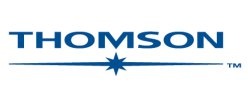 French company Thomson acquired Anaheim California's SynCast Corporation - a distributor of online movies and music - in an effort to become a major player in the world of online media.
French company Thomson acquired Anaheim California's SynCast Corporation - a distributor of online movies and music - in an effort to become a major player in the world of online media.
Thomson is trying to take advantage of the increased digitization of traditional film processes, all the way from pre-production to digital delivery. The company would like to make their Technicolor division, best known for their pioneering work on the color film format bearing the same name, into a giant in the digital video world.
For two decades, starting in the mid-1930s, the Technicolor process was the standard for color film, but their current business model is built increasingly around helping filmmakers solve problems with digital solutions. They already have many production and (digital) theatrical distribution services, so getting into the world of online distribution seems like a logical move.
The new system, which officially begins today, "allows studios to distribute their content faster," says Chris Carey, chief technology officer at Technicolor. Acquiring SyncCast which delivers content on behalf of online retailers such as Microsoft's Xbox Live Video Marketplace, will help Technicolor bolster its offerings in consumer-targeted businesses.
Read more...
Written by Rich Fiscus @ 04 Sep 2007 6:46
 Details on the new iPod models Apple is expected to unveil this week are being kept secret, but analysts believe they'll be announcing a model with a large touchscreen.
Details on the new iPod models Apple is expected to unveil this week are being kept secret, but analysts believe they'll be announcing a model with a large touchscreen.
There has been speculation that the announcements could also include iPods that can download music wirelessly, or even the availability of The Beatles catalog on iTunes.
As companies like NBC Universal put more effort and money into finding (or building) alternatives to the online music leader, it's more important than ever for the iPod to keep moving forward. Last quarter iPod sales accounted for nearly 30% of Apple's revenue. They currently make up 7 out of 10 digital media players fols in the United States.
"Competitors seem to always be chasing the last generation of Apple products. It makes it very difficult for competitors to make a dent against Apple in this space," said Michael Gartenberg, an analyst with market research firm Gartner.
New models are expected to reach store shelves in time for the holiday shopping season.
In recent months Apple's iTunes service has been under heavy attack, both from rival media providers and content creators. Content owners like NBC Universal are looking to price their products variably, depending on consumer interest, while other major players like Sony and Wal-Mart are interested in getting some of Apple's download business.
Read more...
Written by Rich Fiscus @ 04 Sep 2007 6:11
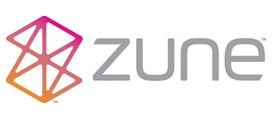 A spokesman for Microsoft said on Tuesday that it's "not unreasonable" for the company to sell a mobile phone with the features of a Zune built in to compete with Apple's iPhone.
A spokesman for Microsoft said on Tuesday that it's "not unreasonable" for the company to sell a mobile phone with the features of a Zune built in to compete with Apple's iPhone.
In light of Apple's relative success with the iPhone, there may be a huge market for phones with integrated mobile media players, but that doesn't necessarily mean a Zune based device would be a success. To date, the Zune hasn't had anything resembling the success of the iPod, so there's no reason to assume it would be a strong selling point for other devices.
So far Microsoft's mobile phone business has revolved around convincing handset manufacturers to use their Windows Mobile software, but that focus may be changing.
"It wouldn't be unreasonable to think at some point there might some integrated thing," Mindy Mount, chief financial officer of Microsoft's entertainment and devices division, told investors at Citigroup's global technology conference.
When the Zune was released last year the official stance was that a phone was definitely being planned, but earlier this year CEO Steve Ballmer stated that they would never try to create a Zune phone. He did, however suggest that similar functionality might be added to the Windows Mobile platform.
Read more...
Written by Rich Fiscus @ 04 Sep 2007 5:46
 Netflix announced that the number of viewings of movies from the company's Watch Now service have greatly increased since it was rolled out to customers around the beginnining of the year.
Netflix announced that the number of viewings of movies from the company's Watch Now service have greatly increased since it was rolled out to customers around the beginnining of the year.
Watch Now is a streaming service intended to compte with rival rental company Blockbuster. Last year Blockbuster introduced online rental plans that enabled customers to return movies directly to their brick and mortar stores across the US. This has proved to be the most competition Netflix has had since their inception 10 years ago.
Netflix customers automatically receive one hour per month of Watch Now streaming for every dollar they pay for their rental plans. Additional hours can be purchased for a fee. Movies can't be saved to the customer's hard drive for later viewing, and while they claim to offer video up to DVD quality, in order to take advantage of that quality requires a lot of sustained bandwidth (at least 3Mbps according to the Netflix website).
Despite the increase in streaming, it's still a very small portion of the company's business.
Read more...
Written by Rich Fiscus @ 04 Sep 2007 5:18
 NBC Universal has made a deal with Amazon.com to sell television show downloads on the online retailer's website.
NBC Universal has made a deal with Amazon.com to sell television show downloads on the online retailer's website.
The move comes just days after the latest round of NBC Universal's very public fight with Apple over iTunes pricing. Universal wants Apple to adopt a variable pricing model while Apple says they want to keep things as simple as possible for consumers. Last Thursday the two sides failed to come to terms on a new contract with Apple to distribute content.
Amazon's deal, which will allow them to sell downloads of NBC television shows through their Unbox download service, includes such shows as "The Office", "Heroes", and "30 Rock". The price will be the same $1.99 they sold for on iTunes.
Last week Apple claimed that a new contract from Universal would have required them to pay twice as much (wholesale) as their previous agreement, and forced them to raise prices. NBC has denied these claims since they became public last week.
Regarding the Amazon.com deal, Jean-Briac Perrette, president, NBC Universal Digital Distribution said "We're excited to be working with a partner that understands the wholesale and retail relationship and will work with us on creative packaging of content."
Read more...
Written by Rich Fiscus @ 03 Sep 2007 5:43
 According to plasma manufacturers at the IFA consumer electronics show in Berlin, the technology is still capable of being a contender in the HDTV market.
According to plasma manufacturers at the IFA consumer electronics show in Berlin, the technology is still capable of being a contender in the HDTV market.
Research firm iSuppli says LCD TVs outsold plasma by a 4:1 margin last year, and that margin should jump to 7:1 this year.
Matsushita's Panasonic TVs are the best selling in the world, and they're confident they can compete with LCD technology through improving quality, decreasing power consumption, and lowering the price.
Hiro Wada of Panasonic believes that plasma televisions can maintain a market share of at least 30% of flat-screen TVs larger than 37".
"We have a chance because demand for bigger screens is increasing," Wada told Reuters in an interview at IFA. He said Matsushita, which is investing $1.5 billion in a plasma panel factory in Japan.
He points out that while LCD technology has been available commercially for more than 30 years, plasma technology has only been around for 10. Panasonic believes that enough improvements can be made to plasma to make it worth staying number 1 in the market.
Wada also said Panasonic aimed to reduce the power consumption of its sets by about 20 percent per year.
Read more...
Written by Rich Fiscus @ 03 Sep 2007 5:28
 Vringo, a startup launched last year, wants to help you send video to your friends' phones.
Vringo, a startup launched last year, wants to help you send video to your friends' phones.
The service works by offering free memberships to the Vringo community. A small piece of software must be installed on the phone that will receive the video. The caller, who must also be a Vringo member, pays to send a video. The idea is similar to sending a link to a video clip via email, except that the recipient doesn't need a computer.
Eventually Vringo would like to move beyond sharing viral video clips between friends. Advertisers are becoming interested in alternate ways to deliver marketing to consumers. In one conceivable scenario, video could be sent with accompanying ad content. Another possibility is getting advertisers to directly compensate consumers (in free talk time for example) for sharing their ads with friends through Vringo.
Vringo currently allows clips to be sent for free, but some time in 2008 they plan to start commercial operations. Prices haven't been released at this point.
Source: TechNewsWorld
Written by Rich Fiscus @ 02 Sep 2007 12:24
 While politicians trade attacks on Chinese copyright enforcement for political capital with lobbiests, they seem to miss the closest parallel to China's current IP enforcement issues - 19th century United States.
While politicians trade attacks on Chinese copyright enforcement for political capital with lobbiests, they seem to miss the closest parallel to China's current IP enforcement issues - 19th century United States.
Last month, US Representative Frank Wolf publicly attacked China, saying that the United States "must be vigilant about protecting the values we hold dear" in the face of China's depredations.
However, if anyone wonders what motivates Chinese business men and government officials they need look no further than the United States of the 19th century. At that time the US wasn't a dominant trading power, and many companies relied on outright piracy of the intellectual property of European companies.
At that time, business regulation was a haphazard affair consisting primarily of state and local laws. Enforcement of trade related laws was all but impossible in some areas.
America's counterfeit goods industry was so prolific it prompted one newspaper at the time to print "We have 'Paris hats' made in New York, 'London Gin' and 'London Porter' that never was in a ship's hold, 'Superfine French paper' made in Massachusetts."
If the Chinese intend to participate in the global economy, and by all indications that's exactly what they want, they'll eventually need to find a place in the IP landscape. The question is whether, like the US before them, they'll be forced to fall into line with regard to intellectual property laws, or whether they'll have some voice in reforming what many westerners see as an increasingly anachronistic system.
Read more...
Written by Rich Fiscus @ 02 Sep 2007 11:00
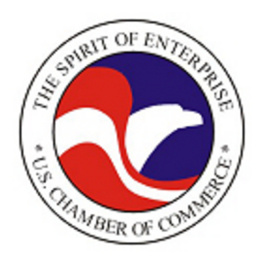 One quarter of the population of Los Angeles County knowingly purchase, or otherwise acquired illegal goods in the last year based on a recent Gallup poll commisioned by the U.S. Chamber of Commerce.
One quarter of the population of Los Angeles County knowingly purchase, or otherwise acquired illegal goods in the last year based on a recent Gallup poll commisioned by the U.S. Chamber of Commerce.
One major difference between this survey and many others was the focus on consumer attitudes. According to the report, consumers who buy counterfeit goods or illegally copy CDs and DVDs feel that they're commiting victimless crimes. As P2P file sharing and bootleg movies and music from Asia become more common, the people participating in these forms of intellectual property infringement don't feel that they've really done anything wrong.
"The study confirmed what we already knew: That the buying of these products is widespread and is viewed as a victimless crime," said Caroline Joiner, executive director of the chamber's global anti-counterfeiting and piracy initiative.
Los Angeles County's 25% reported piracy rate is higher than the nationwide average of 20% found in a similar study last year.
Most of the purchases were DVDs and audio CDs, with other items including clothing bags, shoes, software, and even shampoo.
Source: Los Angeles Times
Written by Rich Fiscus @ 02 Sep 2007 10:43
 Opponents of a patent reform movement in the U.S. government have decided to appeal to the Democrats in power by getting the backing of labor unions - traditional Democratic supporters.
Opponents of a patent reform movement in the U.S. government have decided to appeal to the Democrats in power by getting the backing of labor unions - traditional Democratic supporters.
The AFL-CIO, International Federation of Professional and Technical Engineers (IFPTE), and United Steelworkers have all sent letters to lawmakers opposing the two patent reform bills currently being considered in Washington. The hope is that hearing from labor union representatives will get Democratic lawmakers' attention and convince them not to pass either one into law.
However, large tech companies are exerting pressure to get some kind of patent reform. In recent years many industry leaders have practically been held hostage by company's that are essentially nothing but holding companies for patents. Extremely vague patents and lack of technical expertise among patent judges are often cited as obstacles to the introduction of new technology
Leaders in the U.S. House of Representatives have targeted patent reform for passage by the end of the year.
"I think the momentum exists for this thing to move forward," said Joshua Ackil, vice president of government relations for tech trade group the Information Technology Industry Council (ITI). "As folks [in Congress] dive in a little deeper on this issue, they will come around and understand how important patent reform is to the tech sector."
Read more...
Written by Rich Fiscus @ 01 Sep 2007 3:26
 While libraries have the demand you'd expect for major studio releases, they're also finding that niche markets can be very popular among patrons.
While libraries have the demand you'd expect for major studio releases, they're also finding that niche markets can be very popular among patrons.
David Callahan, principal librarian of the Media Center at New York’s Donnell Library in Manhattan, says that theatrical box office doesn’t often reflect the demand at a library. Indie titles have a longer shelf life, Callahan says.
“With independent, esoteric stuff by filmmakers like [Jim] Jarmusch, [Hal] Hartley and Todd Haynes, the audience is not as big, but the titles are always in circulation.”
Libraries are also finding that topics of literary interest can find their audience there. “Instead of requesting a book on historical events like Vietnam or the Holocaust, we find that patrons ask if there are any movies on the topic,” says Kathleen Sullivan, collection development coordinator of the Phoenix Public Library.
Despite a lot of interest in home video from many libraries, neither high definition video format, Blu-ray or HD DVD, is showing any real demand from library patrons. This shouldn't be surprising as the type of people most likely to have either format at this point probably are probably buying or renting discs.
Read more...
Written by Rich Fiscus @ 01 Sep 2007 2:48
 Despite concerns about the extent of piracy, the movie business has pulled in record revenues this summer, earning more than $4 billion in box revenues in the US alone.
Despite concerns about the extent of piracy, the movie business has pulled in record revenues this summer, earning more than $4 billion in box revenues in the US alone.
Media by Numbers, which tracks such things, estimates that the industry will rake in $4.15 billion by the end of Labor Day. That's despite record-high average ticket prices of $6.85, up $0.30 from a year ago. That's even despite claims that piracy is on the rise, and it's harming the industry.
As you may recall, the movie business has been publicly obsessed with piracy since 2005, when US box office revenues dropped 5.7 percent in a single year. To hear Hollywood tell it, piracy sapped that revenue straight out of the industry, and the industry has focused on little since.
The extent of the studios' concern is easy to gauge: just look at the MPAA homepage. Nearly every featured item on the home page (apart from a box allowing visitors to type in their favorite movie) concerns piracy. The three stories currently showing under "news and issues"? They're all about piracy. The four boxes beneath the "Magic of the Movies" picture? They're all about piracy. Parental resources? It's about... oh, never mind.
Read more...
Written by Rich Fiscus @ 01 Sep 2007 7:54
 After announcing the venture months ago and NBC shutting down another web venture with some of their local affiliates, the video site News Corp. and NBC Universal hope will be a YouTube killer finally got a name: Hulu.
After announcing the venture months ago and NBC shutting down another web venture with some of their local affiliates, the video site News Corp. and NBC Universal hope will be a YouTube killer finally got a name: Hulu.
The name selection -- which is surfacing five months after the media giants announced the venture -- is marketable for multiple reasons, said Jason Kilar, the company's CEO. "Objectively, Hulu is short, easy to spell, easy to pronounce, and rhymes with itself."
The site's launch is behind schedule, with a "private beta" launch expected in October. It was originally expected to be running some time this summer.
"Our hope is that Hulu will embody our -- admittedly ambitious -- never-ending mission, which is to help you find and enjoy the world's premier content when, where and how you want it," Kilar added.
Currently, site visitors can see a sample of content that will be available after the launch and they're signing people up for beta testing.
Source: TechNewsWorld
Written by Rich Fiscus @ 01 Sep 2007 7:43
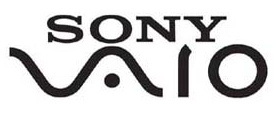 Sony has a new PC designed to be the center of a hi-def multimedia entertainment system.
Sony has a new PC designed to be the center of a hi-def multimedia entertainment system.
The Sony Vaio LT HD PC/TV is designed to serve as a "computer entertainment center," said Sony. In addition to powerful computing capability, the new unit can serve as a high-definition television tuner and as a high-definition Blu-ray disc player.
Multiple configurations of the unit will be available, ranging from an entry level model without basic hi-def support to one with a Blu-ray optical recorder.
The Blu-ray version, expected to cost nearly $3,000 and will have the capacity to not only playback Blu-ray movies, but also record up to 50GB of content onto recordable Blu-ray media.
By adding a CableCARD, users can also get access to cable TV. No option to add these cards is available from the factory, however.
Source: TechNewsWorld
Written by Rich Fiscus @ 01 Sep 2007 7:19
 Next week Apple is expectd to introduce new versions of the industry leading iPod mobile media players.
Next week Apple is expectd to introduce new versions of the industry leading iPod mobile media players.
According to analysts this move is a sign that the company is concentrating on its core business, and hasn't gotten too distracted with the amount of buzz the iPhone's release generated earlier this year.
This follows last month's announcement of an updated iMac desktop computer, adding features and introducing lower priced models.
Apple, in an emailed invitation, would only reveal that it has scheduled the media event for Wednesday in San Francisco.
According to Goldman Sachs analyst David Bailey -- and several Apple fan sites -- the new iPods would be the first to be based on a version of Apple's homegrown computer operating system. They will be about an inch shorter and will be capable of storing more digital media, according to Apple fan sites.
One major source of speculation is whether there will be new models introduced with touch screen technology - similar to the screens on iPhones.
Source: Wall Street Journal
Written by Rich Fiscus @ 31 Aug 2007 10:09
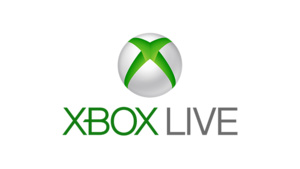 Under a new deal between 20th Century Fox and Microsoft, the first two seasons of animated hit "Family Guy" will be available as downloads for the Xbox 360 from Microsoft's Xbox Live service starting on Monday.
Under a new deal between 20th Century Fox and Microsoft, the first two seasons of animated hit "Family Guy" will be available as downloads for the Xbox 360 from Microsoft's Xbox Live service starting on Monday.
Since Fox doesn't have any kind of general agreement with Microsoft for their content, "Family Guy" will be the first product from the studio to be available on Xbox Live. It's something of a coup for the Redmond, Washington company since iTunes has yet to reach a deal to get the show.
Xbox 360 owners will be able to purchase each of the episodes from the first two seasons as well as the straight-to-DVD film "Family Guy Presents Stewie Griffin: The Untold Story" for 160 Microsoft points, or about $2, which is comparable with the pricing of TV episodes on iTunes and other VOD platforms.
Xbox Live is clearly a key part of Microsoft's strategy for making the Xbox 360 a contender in the console gaming market. While Sony is betting on the inclusion of a Blu-ray drive for entertainment possibillities, Xbox Live provides content online that comes from such companies as Warner Bros., Paramount, the Walt Disney Co., New Line, Lionsgate, Miramax, MTV, Turner Broadcasting and the Ultimate Fighting Championship.
Read more...

 A new study from the U.S. Federal Government's General Accounting Office indicates that not only is there every reason to believe that many residents won't be prepared for, or even informed about, the digital TV transition set for 2009, but there isn't even any effort underway to assess what portion of the public isn't going to be prepared or how to reach them with the message.
A new study from the U.S. Federal Government's General Accounting Office indicates that not only is there every reason to believe that many residents won't be prepared for, or even informed about, the digital TV transition set for 2009, but there isn't even any effort underway to assess what portion of the public isn't going to be prepared or how to reach them with the message.

 Wendy Seltzer, founder of the Chilling Effects Clearinghouse - a project which brings together law clinics from several prominent law schools and the EFF to educate individuals about their rights with regard to intellectual property and fair use, recently spoke at Cornell University advising universities to fight attempted lawsuits against students for illegal file sharing.
Wendy Seltzer, founder of the Chilling Effects Clearinghouse - a project which brings together law clinics from several prominent law schools and the EFF to educate individuals about their rights with regard to intellectual property and fair use, recently spoke at Cornell University advising universities to fight attempted lawsuits against students for illegal file sharing.
 A paper from economist Stan Liebowitz argues that both the music industry and file sharing defenders are cherry picking facts to prove their points.
A paper from economist Stan Liebowitz argues that both the music industry and file sharing defenders are cherry picking facts to prove their points.
 At least one Sony strategy to promote
At least one Sony strategy to promote  U.S. retailers have started advertising various popular features for $3.99. The movies, from Universal, Sony, and Paramount, would seem to be an effort from studios to disappointing DVD sales over the last two years.
U.S. retailers have started advertising various popular features for $3.99. The movies, from Universal, Sony, and Paramount, would seem to be an effort from studios to disappointing DVD sales over the last two years.
 As part of their plan to provide 100 hi-def channels by the end of this year, DirecTV has added 21 new HD channels to its satellite television service.
As part of their plan to provide 100 hi-def channels by the end of this year, DirecTV has added 21 new HD channels to its satellite television service.
 Next week will mark the first time a copyright infringement case brought by the
Next week will mark the first time a copyright infringement case brought by the  Cinematube.net and SSUpload are the most recent targets of lawsuits by the
Cinematube.net and SSUpload are the most recent targets of lawsuits by the  With the offical acceptance of
With the offical acceptance of  Toshiba is planning to unveil a new video processing product based on the
Toshiba is planning to unveil a new video processing product based on the  Sling Media co-founder and CEO Blake Krikorian is excited about the company's future after the announcement last week that the company is being acquired by Dish Network parent company Echostar Communications.
Sling Media co-founder and CEO Blake Krikorian is excited about the company's future after the announcement last week that the company is being acquired by Dish Network parent company Echostar Communications.
 Imagine if a major automobile manufacturer came up with a way to use an onboard computer to require that you buy gasoline from a particular company. It's the same gas you can buy anywhere, but unless the pump includes special circuitry only available to a single company that paid a bunch of money to the car's manufacturer for the privilege, the gas tank can't be filled. Now let's say that an enterprising individual wants to choose his own gas station, so he comes up with a way to reprogram the car's computer, allowing the owner to fill the gas tank from any pump at any gas station. Let's finally suppose that there's a recall on the car, requiring owners to bring them into a dealership for free repairs, but while the car is being fixed, every dealer is required to check the fuel tank computer to make sure it hasn't been tampered with to allow gas from non-approved sources, and disable the car's engine if evidence of tampering is found. When irate owners complain to dealership management they're simply told that a license agreement they agreed to by driving off the lot voids the car's warranty, and another on a piece of paper they signed to get the recall work done allows the dealership to modify the car in whatever way the manufacturer wants, so basically there's nothing they can do.
Imagine if a major automobile manufacturer came up with a way to use an onboard computer to require that you buy gasoline from a particular company. It's the same gas you can buy anywhere, but unless the pump includes special circuitry only available to a single company that paid a bunch of money to the car's manufacturer for the privilege, the gas tank can't be filled. Now let's say that an enterprising individual wants to choose his own gas station, so he comes up with a way to reprogram the car's computer, allowing the owner to fill the gas tank from any pump at any gas station. Let's finally suppose that there's a recall on the car, requiring owners to bring them into a dealership for free repairs, but while the car is being fixed, every dealer is required to check the fuel tank computer to make sure it hasn't been tampered with to allow gas from non-approved sources, and disable the car's engine if evidence of tampering is found. When irate owners complain to dealership management they're simply told that a license agreement they agreed to by driving off the lot voids the car's warranty, and another on a piece of paper they signed to get the recall work done allows the dealership to modify the car in whatever way the manufacturer wants, so basically there's nothing they can do.
 New figures released by Leichtman Research Group (LRG), 20% of US homes have DVRs, with an increase to 50% expected by 2011.
New figures released by Leichtman Research Group (LRG), 20% of US homes have DVRs, with an increase to 50% expected by 2011.
 Jean-Bernard Levy, chairman of Universal Music Group parent company Vivendi commented on UMG's very public feud with Apple over iTunes pricing, saying "The split between Apple and (music) producers is indecent," adding "We should have a differentiated price system."
Jean-Bernard Levy, chairman of Universal Music Group parent company Vivendi commented on UMG's very public feud with Apple over iTunes pricing, saying "The split between Apple and (music) producers is indecent," adding "We should have a differentiated price system."
 Filmax Entertainment of Spain is launching an online store selling movies and music around the world. The company hopes to have the site operational sometime in the first half of 2008.
Filmax Entertainment of Spain is launching an online store selling movies and music around the world. The company hopes to have the site operational sometime in the first half of 2008.
 A recent report from entertainment market analysis firm Screen Digest says the UK online TV market is expected to be worth £181 million ($362 million) by 2011, however movie downloads aren't expected to see nearly the same amount of growth over the same time period.
A recent report from entertainment market analysis firm Screen Digest says the UK online TV market is expected to be worth £181 million ($362 million) by 2011, however movie downloads aren't expected to see nearly the same amount of growth over the same time period.
 Blu-ray has scored another victory of questionable importance by scoring an endorsement from the Home Theater Specialists of America (HTSA), a buying group for A/V dealers and installers. The decision to back the format was based on member sales trends.
Blu-ray has scored another victory of questionable importance by scoring an endorsement from the Home Theater Specialists of America (HTSA), a buying group for A/V dealers and installers. The decision to back the format was based on member sales trends.
 A study from the Canadian Internet Policy and Public Interest Clinic (CIPPIC) at the Universite of Ottawa claims that DRM on various products, ranging from downloaded MP3s to productivity and security software violates Canadian law because users aren't adequately notified of how personal information is collected and used. It also indicates that Canadian law requires that consumers be allowed to opt of the collection and use of personal details.
A study from the Canadian Internet Policy and Public Interest Clinic (CIPPIC) at the Universite of Ottawa claims that DRM on various products, ranging from downloaded MP3s to productivity and security software violates Canadian law because users aren't adequately notified of how personal information is collected and used. It also indicates that Canadian law requires that consumers be allowed to opt of the collection and use of personal details.
 According to a Parks Associates study, the portable media player market won't really take off until more content is available and devices make improvements to the overall viewing experience.
According to a Parks Associates study, the portable media player market won't really take off until more content is available and devices make improvements to the overall viewing experience.
 The second week in October will see some of the biggest names in
The second week in October will see some of the biggest names in  Sales of television
Sales of television  A study released by the NPD Group shows that most owners of HDTVs aren't particularly excited about the next generation technology in
A study released by the NPD Group shows that most owners of HDTVs aren't particularly excited about the next generation technology in  Joining NBC and ABC in offering free television show downloads, Fox will be promoting several shows by making their premieres available for free on iTunes. The network hopes the downloads will convince viewers to either watch the shows on TV or buy future episodes through iTunes.
Joining NBC and ABC in offering free television show downloads, Fox will be promoting several shows by making their premieres available for free on iTunes. The network hopes the downloads will convince viewers to either watch the shows on TV or buy future episodes through iTunes.
 The
The  Figures released by UK regulatory company Ofcom show that digital television is installed in 84% of UK homes. The 13% increase in the last year is the biggest one year increase to date.The figures are good news since the switch to 100% digital television broadcasting is set to begin in October.
Figures released by UK regulatory company Ofcom show that digital television is installed in 84% of UK homes. The 13% increase in the last year is the biggest one year increase to date.The figures are good news since the switch to 100% digital television broadcasting is set to begin in October.
 Talal Shamoon, CEO of a leading
Talal Shamoon, CEO of a leading  Now that the EU Commision is done with Microsoft's antitrust appeal, which the software giant lost, at least one expert believes Apple may be the next company to face penalties.
Now that the EU Commision is done with Microsoft's antitrust appeal, which the software giant lost, at least one expert believes Apple may be the next company to face penalties.
 Apparently at least one television provider isn't concerned about Apple's iTunes pricing. "We like our relationship with iTunes." CBS CEO Les Moonves said on Tuesday.
Apparently at least one television provider isn't concerned about Apple's iTunes pricing. "We like our relationship with iTunes." CBS CEO Les Moonves said on Tuesday.
 MGM will be bringing their movie library of over 4,000 titles to a hi-def cable network called MGM HD. DirecTV has already signed a deal to carry the new network. It will be advertiser supported.
MGM will be bringing their movie library of over 4,000 titles to a hi-def cable network called MGM HD. DirecTV has already signed a deal to carry the new network. It will be advertiser supported.
 After reading statements made by U.S. Register of Copyrights Marybeth Peters it shouldn't surprise anyone to find out that she's a self described luddite who doesn't even have a computer at home. Short of being in a coma since the law went into effect in 1998, that's the only explanation for saying "I think it did what it was supposed to do," which is what she recently told an audience at the Future of Music Policy Summit.
After reading statements made by U.S. Register of Copyrights Marybeth Peters it shouldn't surprise anyone to find out that she's a self described luddite who doesn't even have a computer at home. Short of being in a coma since the law went into effect in 1998, that's the only explanation for saying "I think it did what it was supposed to do," which is what she recently told an audience at the Future of Music Policy Summit.
 The
The  A new line of set-top boxes described as a digital media receivers (DMRs) from
A new line of set-top boxes described as a digital media receivers (DMRs) from  MediaDefender, the company caught offering virus laden movie downloads, presumably on behalf of their client
MediaDefender, the company caught offering virus laden movie downloads, presumably on behalf of their client  Magnatune, a record label founded in 1999, is using Creative Commons licenses and a flexible pricing model to provide music via the web. Consumers have the option to either listen online with announcements between tracks or get a copy, either via download or
Magnatune, a record label founded in 1999, is using Creative Commons licenses and a flexible pricing model to provide music via the web. Consumers have the option to either listen online with announcements between tracks or get a copy, either via download or  At a conference of porn producers, attorneys, and other prominent industry figures, discussions were held on reducing the rampant piracy faced by the industry today.
At a conference of porn producers, attorneys, and other prominent industry figures, discussions were held on reducing the rampant piracy faced by the industry today.
 The advice for broadcasters from media companies around the world is to get content online and be innovators. It was delivered at the Royal Television Society convention in Cambridge.
The advice for broadcasters from media companies around the world is to get content online and be innovators. It was delivered at the Royal Television Society convention in Cambridge.
 In a move sure to bring more accusations from open source advocates, the BBC's iPlayer development team has added a former executive from Microsoft's digital media division.
In a move sure to bring more accusations from open source advocates, the BBC's iPlayer development team has added a former executive from Microsoft's digital media division.
 According to a new study from comScore, online video viewership in the United States is steadliy increasing. Nearly 75% of internet users in the U.S. watched video online in July, up from just over 71% in March.
According to a new study from comScore, online video viewership in the United States is steadliy increasing. Nearly 75% of internet users in the U.S. watched video online in July, up from just over 71% in March.
 Hoping to revolutionize anti-piracy efforts for online video, Philips Content Identification is working on building the world's largest video fingerprinting database.
Hoping to revolutionize anti-piracy efforts for online video, Philips Content Identification is working on building the world's largest video fingerprinting database.
 Consumer technology analysis firm Parks Associates sees DVDs, diversity, ads, and set-top boxes as keys to successful digital video delivery.In a recent report they looked at a variety of technolgies ranging from broadcast television and DVRs to video
Consumer technology analysis firm Parks Associates sees DVDs, diversity, ads, and set-top boxes as keys to successful digital video delivery.In a recent report they looked at a variety of technolgies ranging from broadcast television and DVRs to video  With
With  Viacom has backed down from a
Viacom has backed down from a  According to a study from the Computer and Communications Industry Association (CCIA) concludes that fair use is responsible for nearly 17% of U.S. GDP in 2006 and employs approximately 1/8 of the American workforce. Comparing data from 2002 and 2006, the study concluded that not only is fair use an important source of profits, but those profits are growing.
According to a study from the Computer and Communications Industry Association (CCIA) concludes that fair use is responsible for nearly 17% of U.S. GDP in 2006 and employs approximately 1/8 of the American workforce. Comparing data from 2002 and 2006, the study concluded that not only is fair use an important source of profits, but those profits are growing.
 Despite reports of lucrative offers to follow Paramount's lead and get behind
Despite reports of lucrative offers to follow Paramount's lead and get behind  Former Viacom executives Tom Freston and Jonathan Dolgen have joined Micheal Eisner and others as backers of viral video company Veoh Networks.
Former Viacom executives Tom Freston and Jonathan Dolgen have joined Micheal Eisner and others as backers of viral video company Veoh Networks.
 In an attempt to save money, Blockbuster's Chief Operating Officer position has been eliminated, and senior executive Vice President Nick Shepherd let go, although he will remain as a consultant through year's end.
In an attempt to save money, Blockbuster's Chief Operating Officer position has been eliminated, and senior executive Vice President Nick Shepherd let go, although he will remain as a consultant through year's end.
 This year's International Broadcasting Conference (IBC), which raps up today in Amsterdam, has been all about how to deliver content digitally in nearly every conceivable way. From
This year's International Broadcasting Conference (IBC), which raps up today in Amsterdam, has been all about how to deliver content digitally in nearly every conceivable way. From  FCC Chairman Kevin Martin wants the agency to require cable companies to guarantee support for their customers' analog televisions after the 2009 switch to digital broadcasts over the air.
FCC Chairman Kevin Martin wants the agency to require cable companies to guarantee support for their customers' analog televisions after the 2009 switch to digital broadcasts over the air.
 Vodafone today became the latest mobile phone provider to get into the music download business.
Vodafone today became the latest mobile phone provider to get into the music download business.
 The music industry has once again decided the reason people aren't spending as much money on their product is packaging. In order to correct this perceived packaging shortfall they've decided to introduce a new format called the ringle.
The music industry has once again decided the reason people aren't spending as much money on their product is packaging. In order to correct this perceived packaging shortfall they've decided to introduce a new format called the ringle.
 Universal Music Group's legal tactics are under fire again. This time the heat is coming from DivX, Inc., developer of both the
Universal Music Group's legal tactics are under fire again. This time the heat is coming from DivX, Inc., developer of both the  Some former Comcast customers would like to know how much bandwidth is too much. Even after having their internet service disconnected for excessive downloading, the cable company won't reveal at what point they crossed the line.
Some former Comcast customers would like to know how much bandwidth is too much. Even after having their internet service disconnected for excessive downloading, the cable company won't reveal at what point they crossed the line.
 New Media Enterprises (NME) is betting on the cost effectiveness of red laser video players to beat both HD DVD and Blu-ray in the next-generation format wars, and they're backing it up with a format called Versatile Multilayer Disc. At the CEDIA show this week in Denver, Colorado they showed off HD VMD, which puts high definition video on a VMD disc.
New Media Enterprises (NME) is betting on the cost effectiveness of red laser video players to beat both HD DVD and Blu-ray in the next-generation format wars, and they're backing it up with a format called Versatile Multilayer Disc. At the CEDIA show this week in Denver, Colorado they showed off HD VMD, which puts high definition video on a VMD disc.
 ABC Television will be making four shows produced by Warner Bros. available on the network's web-based media player.
ABC Television will be making four shows produced by Warner Bros. available on the network's web-based media player.
 Microsoft has big hopes for the future of
Microsoft has big hopes for the future of  A Florida man is suing Apple for violating the Florida Deceptive and Unfair Trade Practices Act by putting technical restrictions on iPods that he claims unfairly restrict competition. Frederick Black is upset that he can't use his iPod with online retailers other than iTunes or easily transfer content purchased from iTunes to other devices.
A Florida man is suing Apple for violating the Florida Deceptive and Unfair Trade Practices Act by putting technical restrictions on iPods that he claims unfairly restrict competition. Frederick Black is upset that he can't use his iPod with online retailers other than iTunes or easily transfer content purchased from iTunes to other devices.
 At the CEDIA (Custom Electronics Design and Intallation Association) Expo Toshiba is announcing two new
At the CEDIA (Custom Electronics Design and Intallation Association) Expo Toshiba is announcing two new  Wednesday a new Internet based Video On Demand (VOD) service called Vudu was launched. The service will offer over 5,000 movies from both major studios and independent filmmakers.
Wednesday a new Internet based Video On Demand (VOD) service called Vudu was launched. The service will offer over 5,000 movies from both major studios and independent filmmakers.
 Pioneer will be releasing a third generation
Pioneer will be releasing a third generation  Eli El of Blue Island, IL was sentenced to 30 months in federal prison for participating in a conspiracy to distribute pirated software on the internet.
Eli El of Blue Island, IL was sentenced to 30 months in federal prison for participating in a conspiracy to distribute pirated software on the internet.
 Over the next five years Linux is expected to be the fastest growing smartphone OS according to research firm ABI Research.
Over the next five years Linux is expected to be the fastest growing smartphone OS according to research firm ABI Research.
 ABC's Good Morning America is trying out a new model to expand their show. A week before NBC rival Today expands from three to four hours, Good Morning America is adding an hour to their show. The catch is you may not be able to see it.
ABC's Good Morning America is trying out a new model to expand their show. A week before NBC rival Today expands from three to four hours, Good Morning America is adding an hour to their show. The catch is you may not be able to see it.
 Today Microsoft will be releasing Silverlight 1.0. Silverlight is the web video plug-in they hope will compete with Adobe's Flash.
Today Microsoft will be releasing Silverlight 1.0. Silverlight is the web video plug-in they hope will compete with Adobe's Flash.
 LG Electronics of South Korea has introduced a new version of its combination
LG Electronics of South Korea has introduced a new version of its combination  French company Thomson acquired Anaheim California's SynCast Corporation - a distributor of online movies and music - in an effort to become a major player in the world of online media.
French company Thomson acquired Anaheim California's SynCast Corporation - a distributor of online movies and music - in an effort to become a major player in the world of online media.
 Details on the new iPod models Apple is expected to unveil this week are being kept secret, but analysts believe they'll be announcing a model with a large touchscreen.
Details on the new iPod models Apple is expected to unveil this week are being kept secret, but analysts believe they'll be announcing a model with a large touchscreen.
 A spokesman for Microsoft said on Tuesday that it's "not unreasonable" for the company to sell a mobile phone with the features of a Zune built in to compete with Apple's iPhone.
A spokesman for Microsoft said on Tuesday that it's "not unreasonable" for the company to sell a mobile phone with the features of a Zune built in to compete with Apple's iPhone.
 Netflix announced that the number of viewings of movies from the company's Watch Now service have greatly increased since it was rolled out to customers around the beginnining of the year.
Netflix announced that the number of viewings of movies from the company's Watch Now service have greatly increased since it was rolled out to customers around the beginnining of the year.
 According to plasma manufacturers at the IFA consumer electronics show in Berlin, the technology is still capable of being a contender in the HDTV market.
According to plasma manufacturers at the IFA consumer electronics show in Berlin, the technology is still capable of being a contender in the HDTV market.
 Vringo, a startup launched last year, wants to help you send video to your friends' phones.
Vringo, a startup launched last year, wants to help you send video to your friends' phones.
 While politicians trade attacks on Chinese copyright enforcement for political capital with lobbiests, they seem to miss the closest parallel to China's current IP enforcement issues - 19th century United States.
While politicians trade attacks on Chinese copyright enforcement for political capital with lobbiests, they seem to miss the closest parallel to China's current IP enforcement issues - 19th century United States.
 One quarter of the population of Los Angeles County knowingly purchase, or otherwise acquired illegal goods in the last year based on a recent Gallup poll commisioned by the U.S. Chamber of Commerce.
One quarter of the population of Los Angeles County knowingly purchase, or otherwise acquired illegal goods in the last year based on a recent Gallup poll commisioned by the U.S. Chamber of Commerce.
 Opponents of a patent reform movement in the U.S. government have decided to appeal to the Democrats in power by getting the backing of labor unions - traditional Democratic supporters.
Opponents of a patent reform movement in the U.S. government have decided to appeal to the Democrats in power by getting the backing of labor unions - traditional Democratic supporters.
 While libraries have the demand you'd expect for major studio releases, they're also finding that niche markets can be very popular among patrons.
While libraries have the demand you'd expect for major studio releases, they're also finding that niche markets can be very popular among patrons.
 Despite concerns about the extent of piracy, the movie business has pulled in record revenues this summer, earning more than $4 billion in box revenues in the US alone.
Despite concerns about the extent of piracy, the movie business has pulled in record revenues this summer, earning more than $4 billion in box revenues in the US alone.
 Sony has a new PC designed to be the center of a hi-def multimedia entertainment system.
Sony has a new PC designed to be the center of a hi-def multimedia entertainment system.
 Next week Apple is expectd to introduce new versions of the industry leading iPod mobile media players.
Next week Apple is expectd to introduce new versions of the industry leading iPod mobile media players.
 Under a new deal between 20th Century Fox and Microsoft, the first two seasons of animated hit "Family Guy" will be available as downloads for the Xbox 360 from Microsoft's Xbox Live service starting on Monday.
Under a new deal between 20th Century Fox and Microsoft, the first two seasons of animated hit "Family Guy" will be available as downloads for the Xbox 360 from Microsoft's Xbox Live service starting on Monday.







